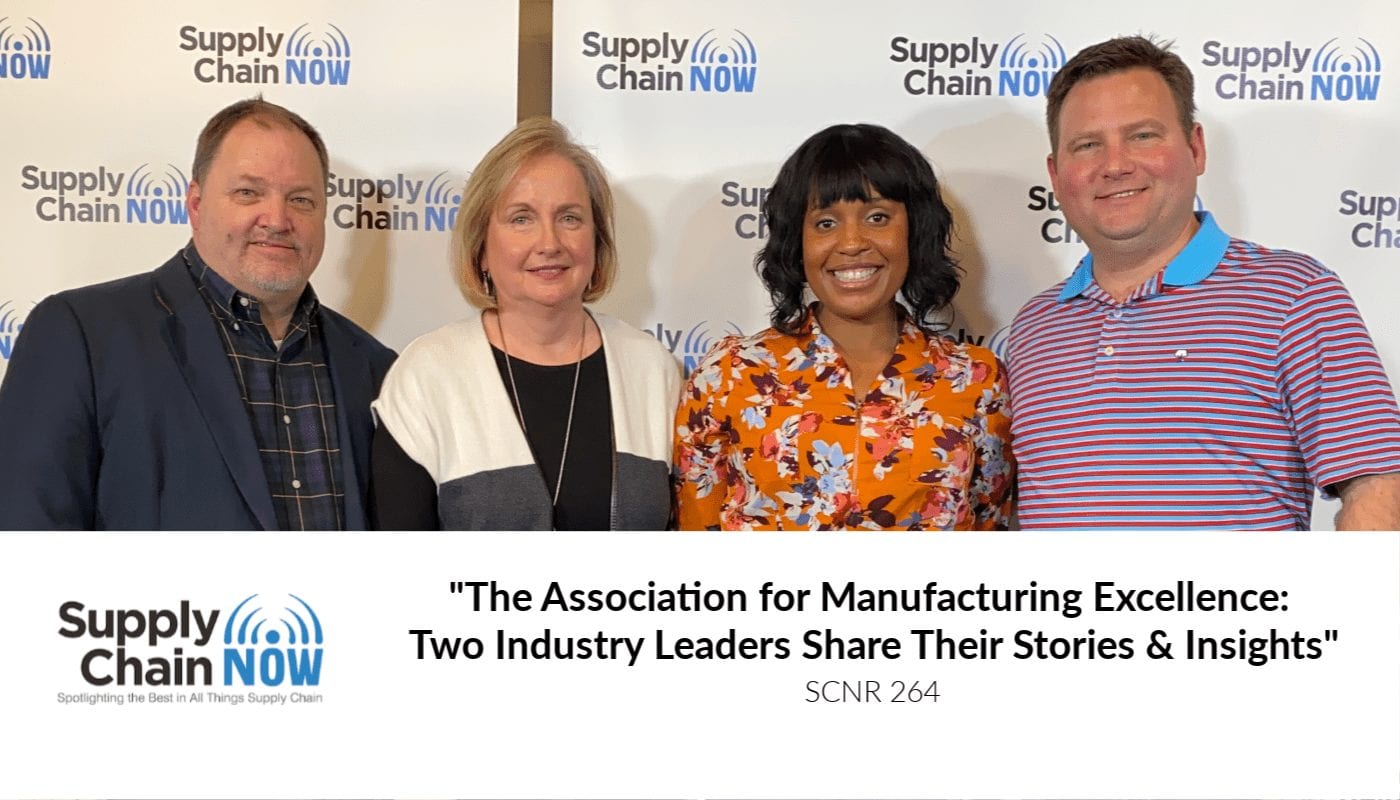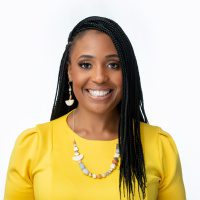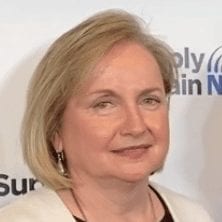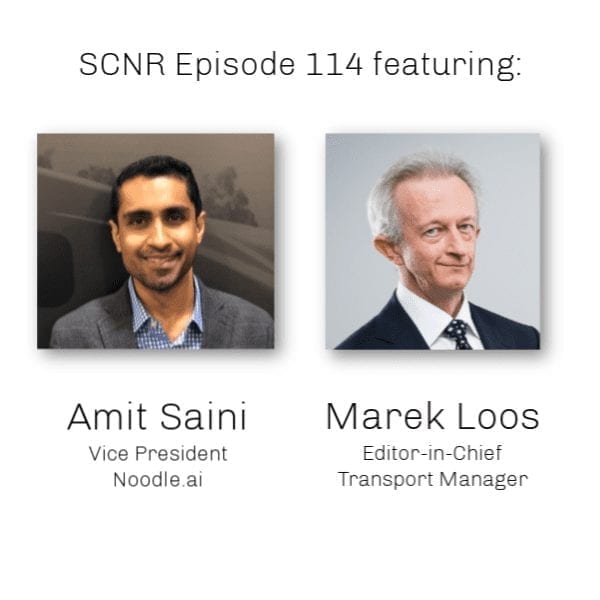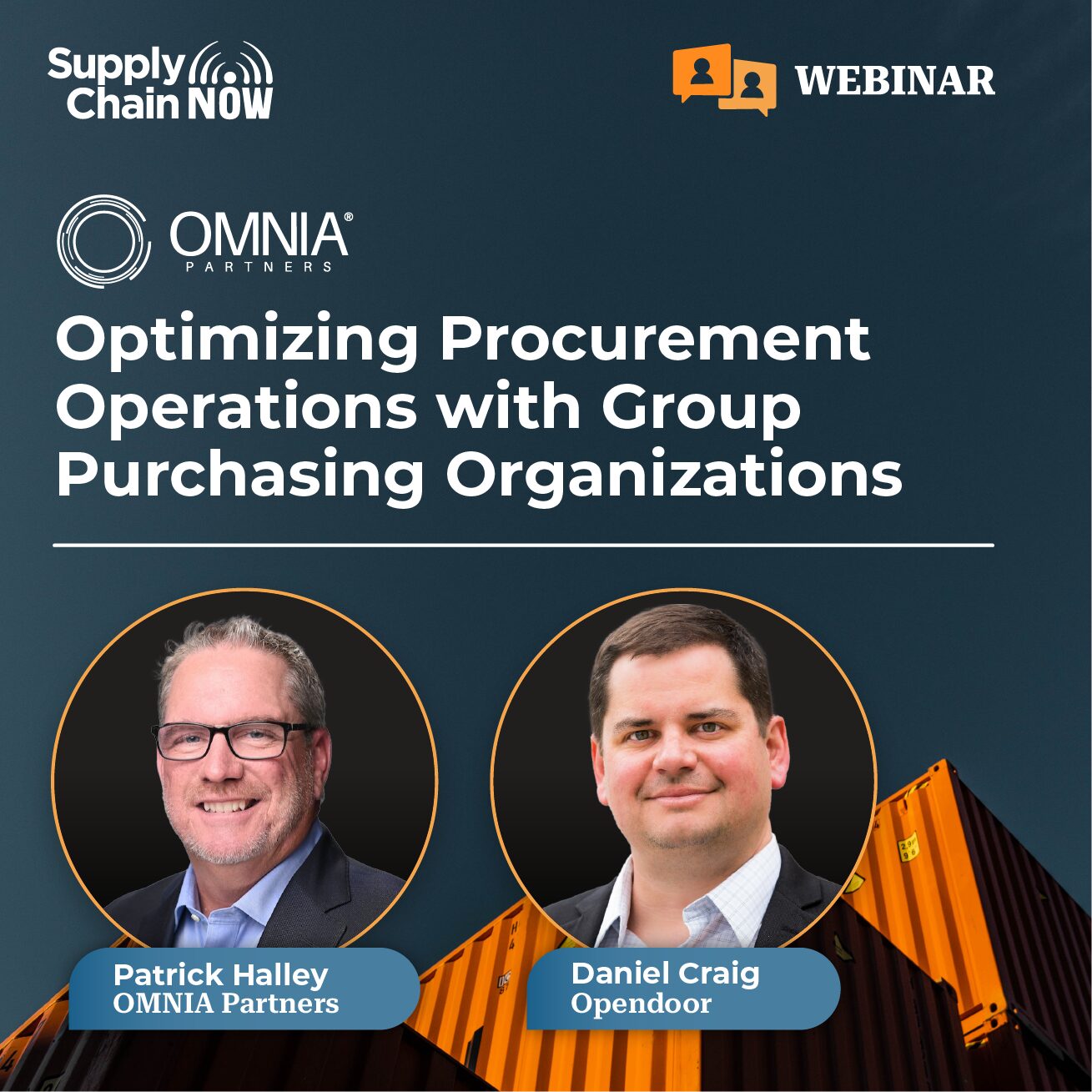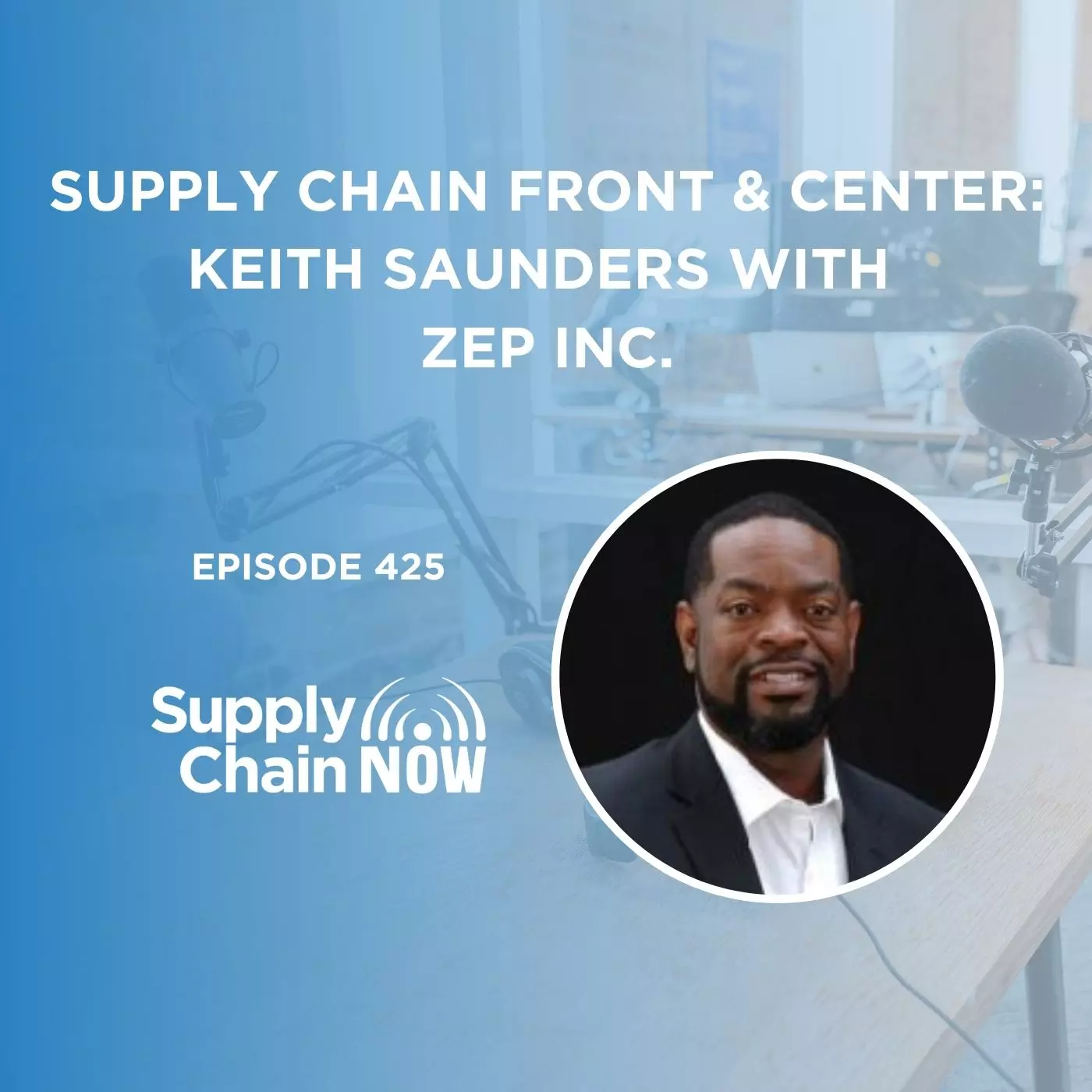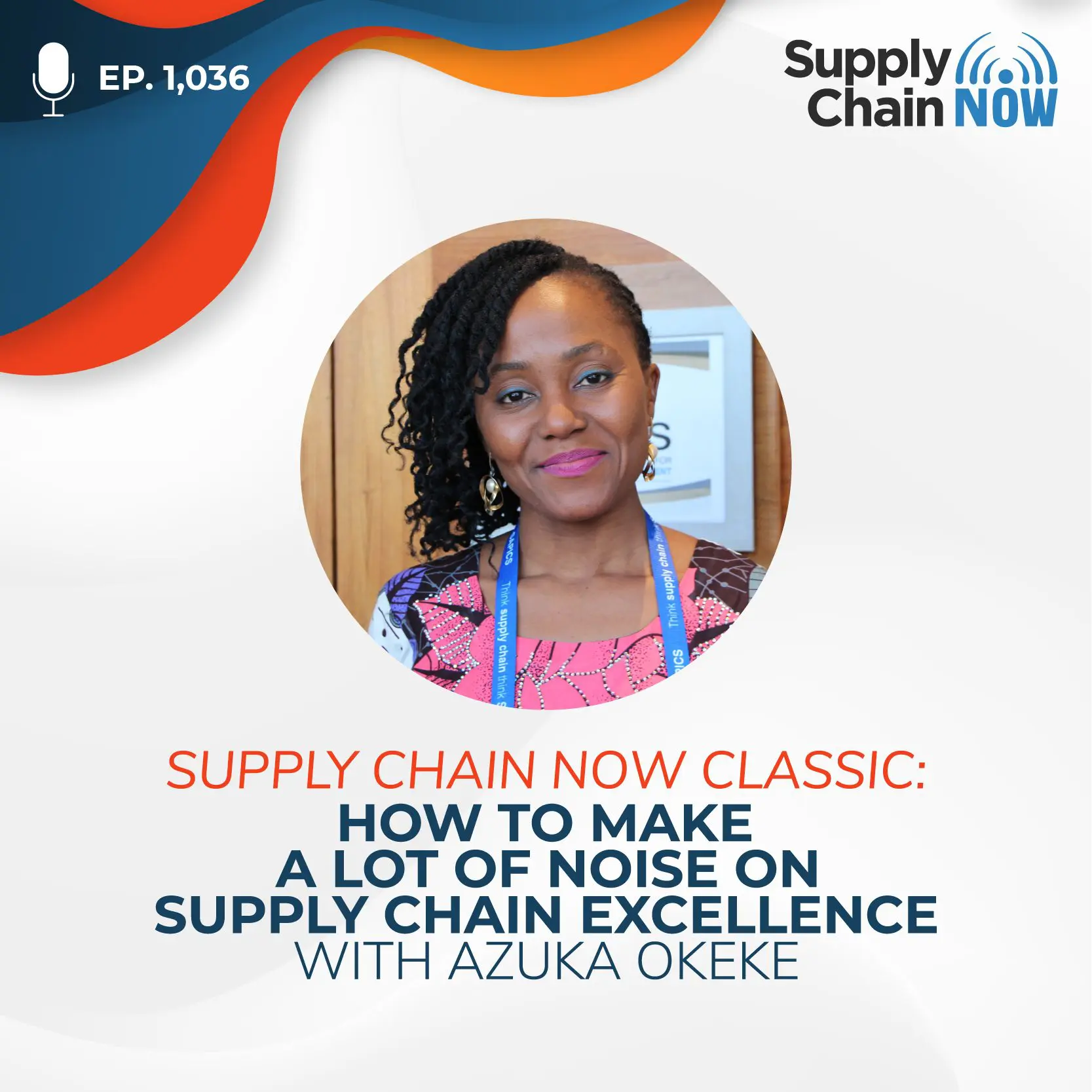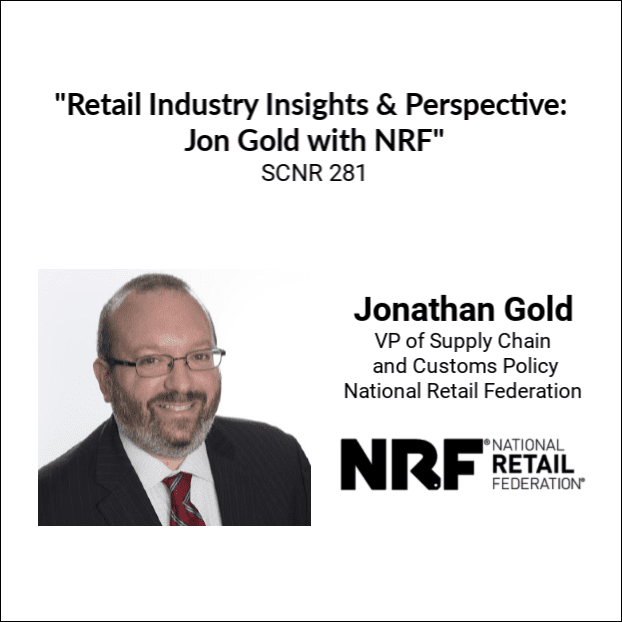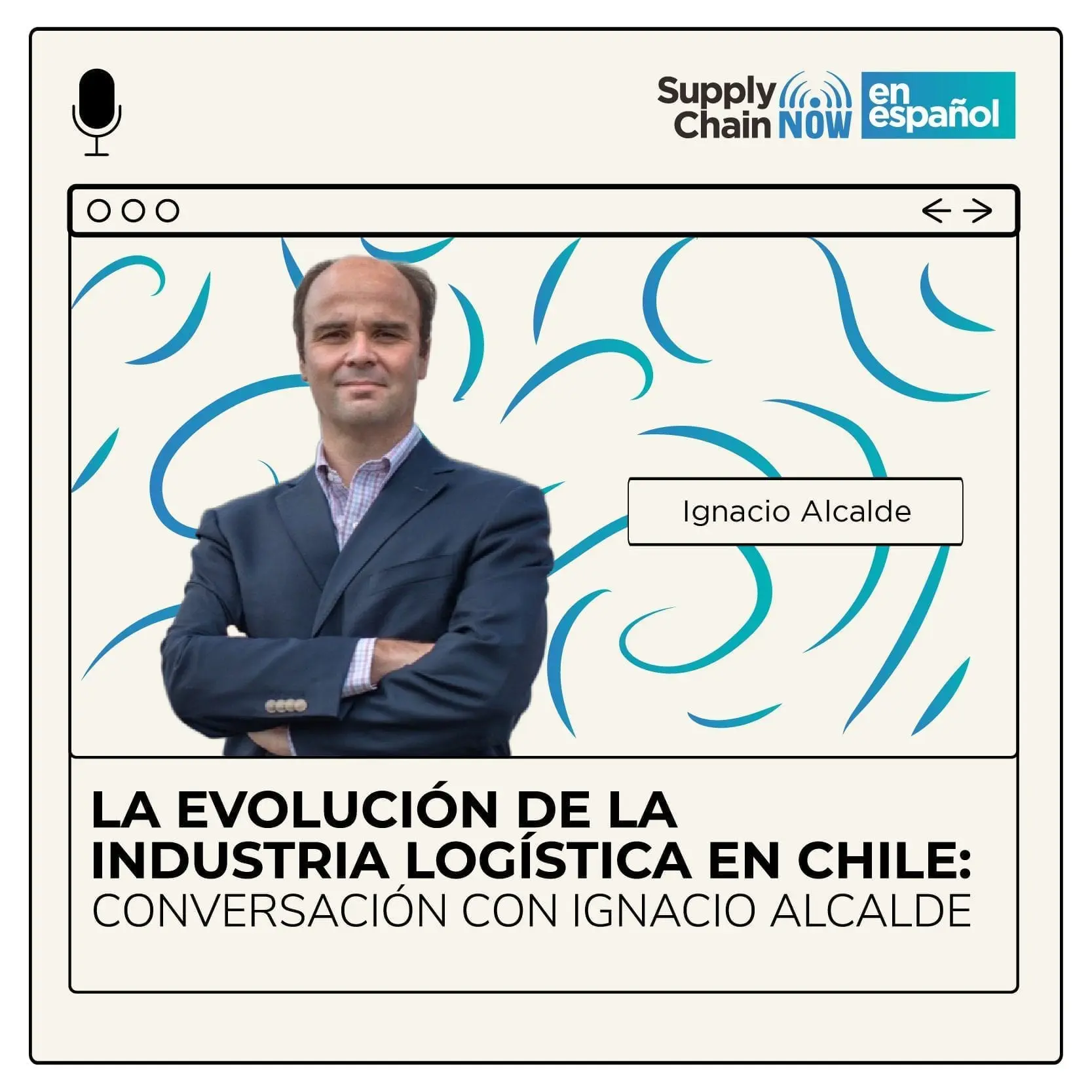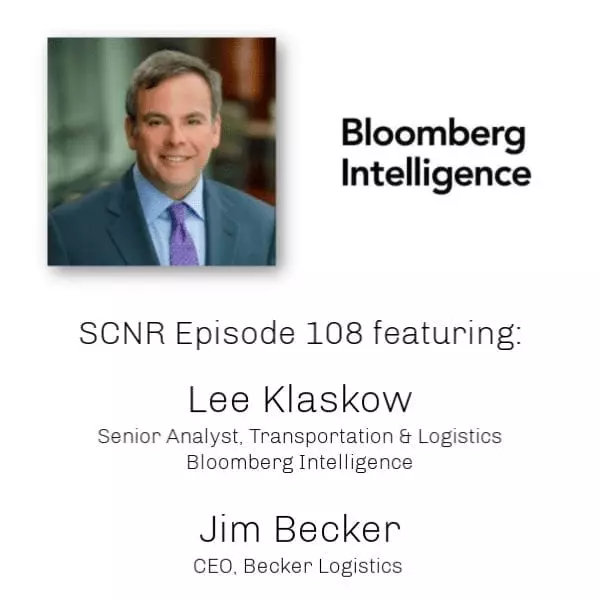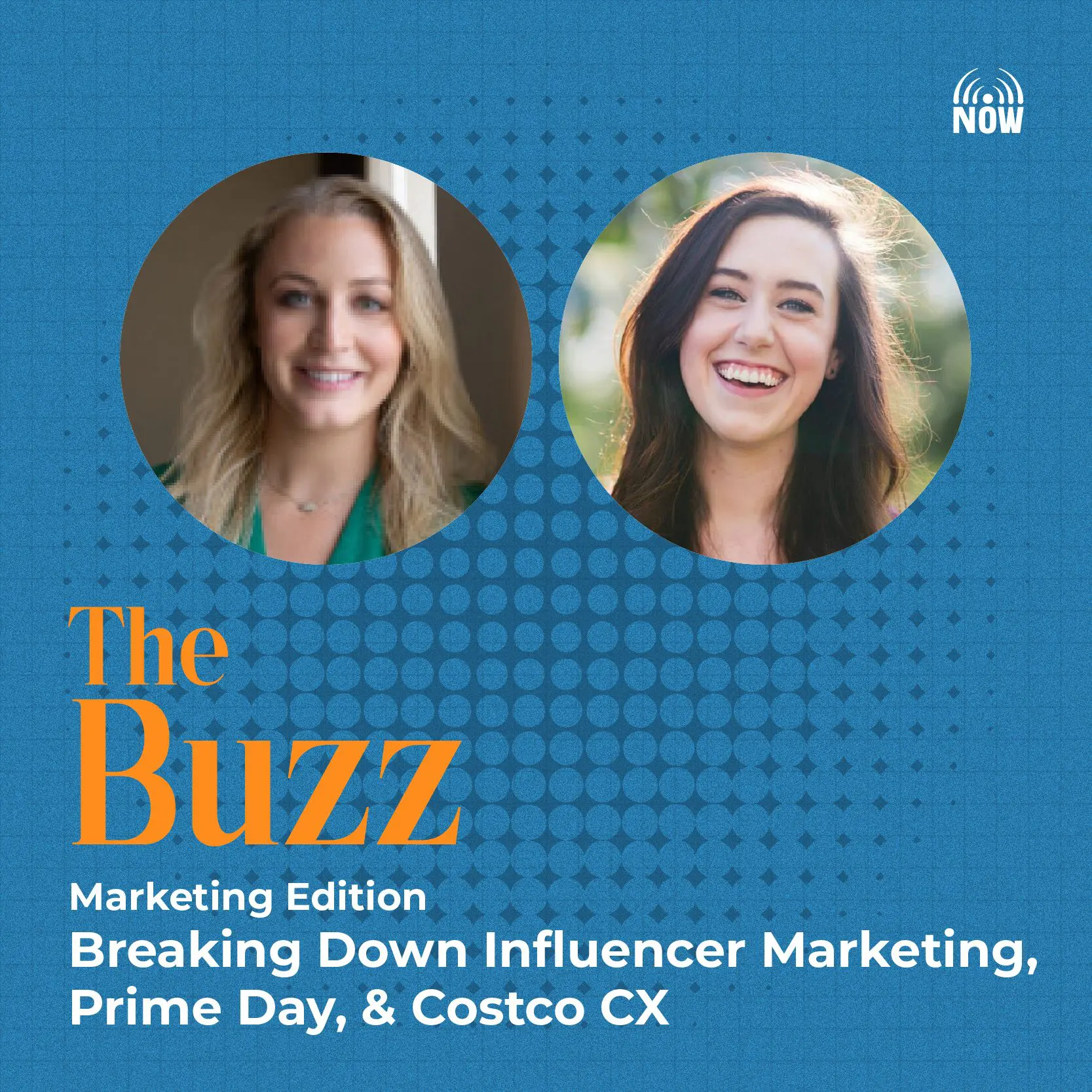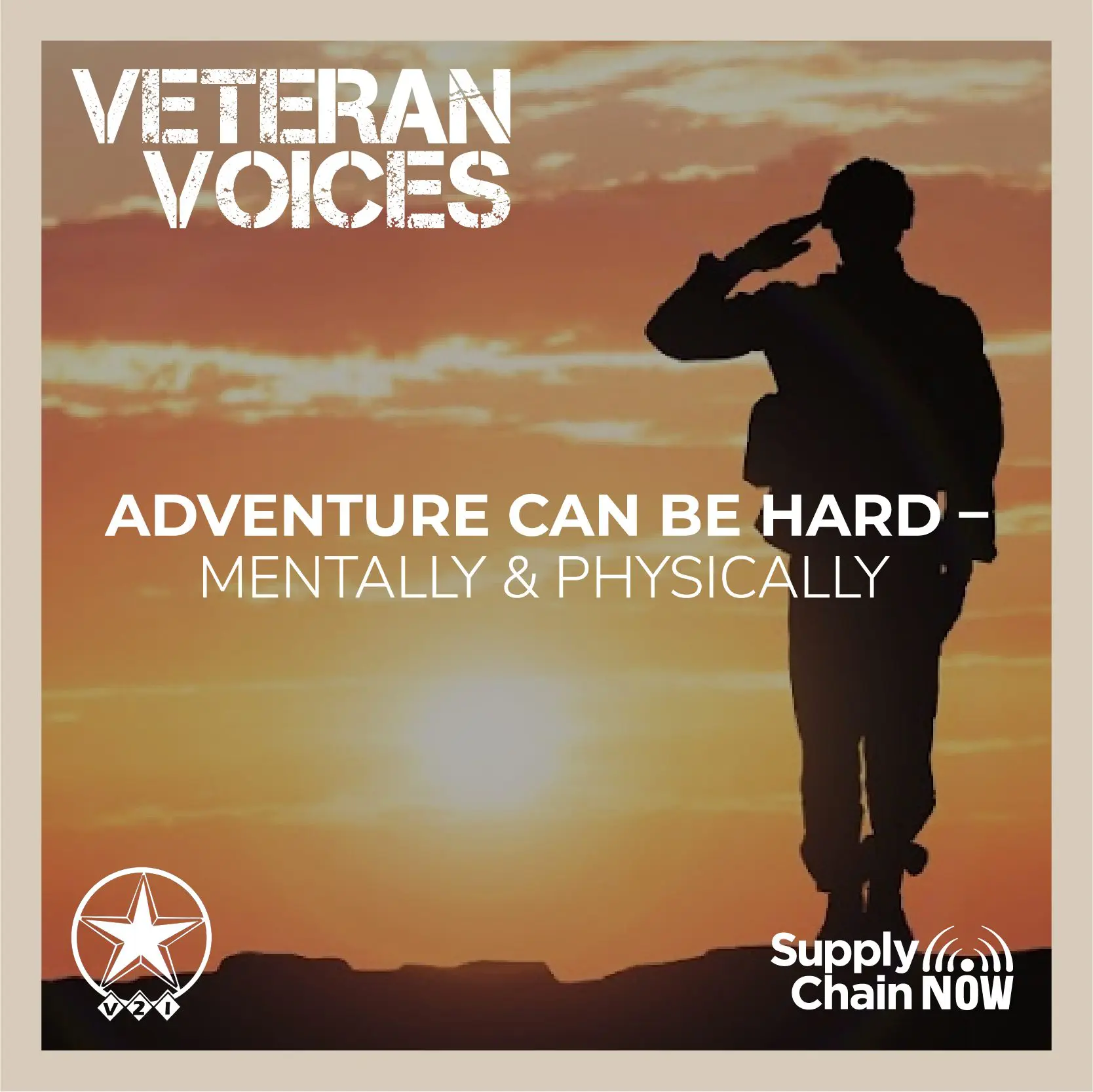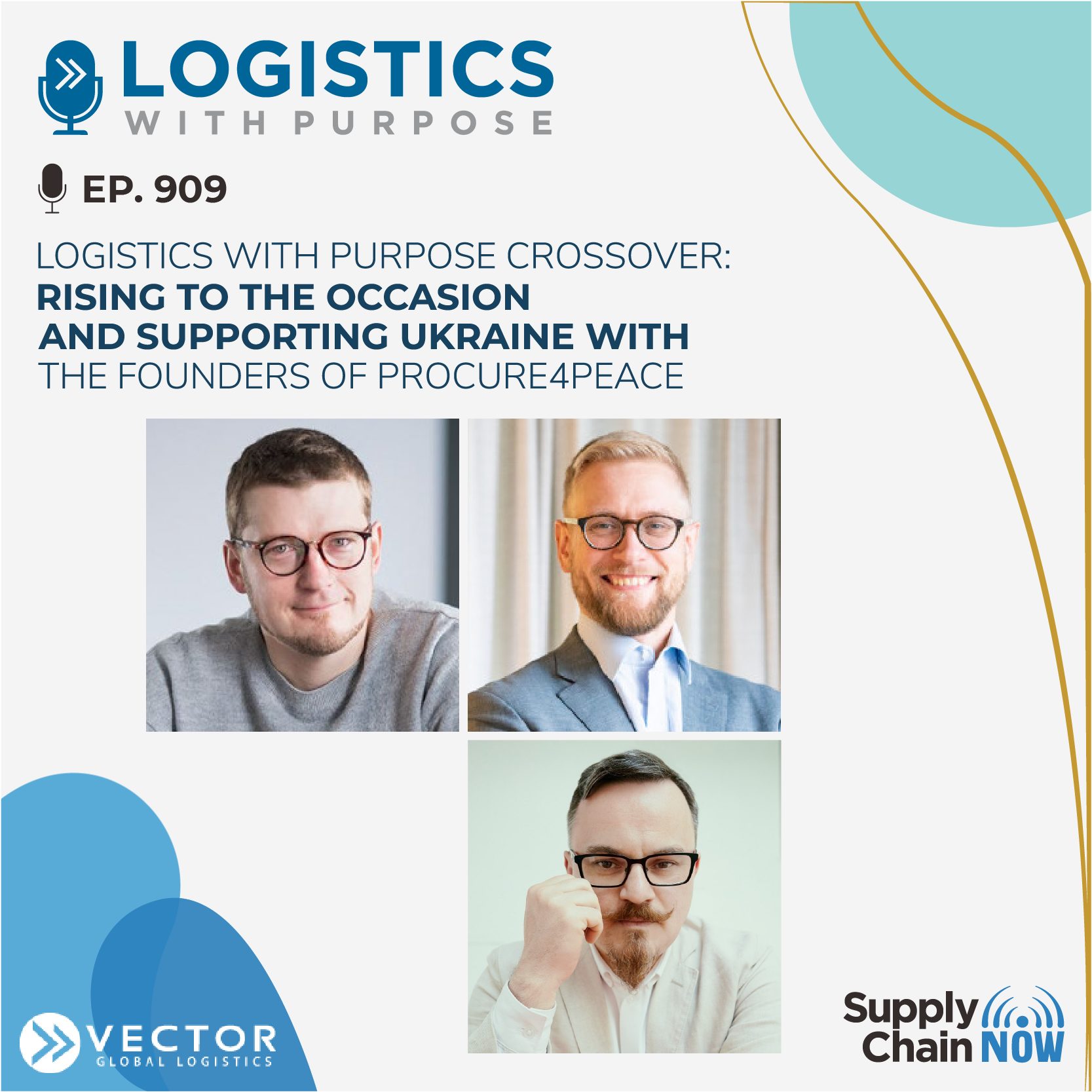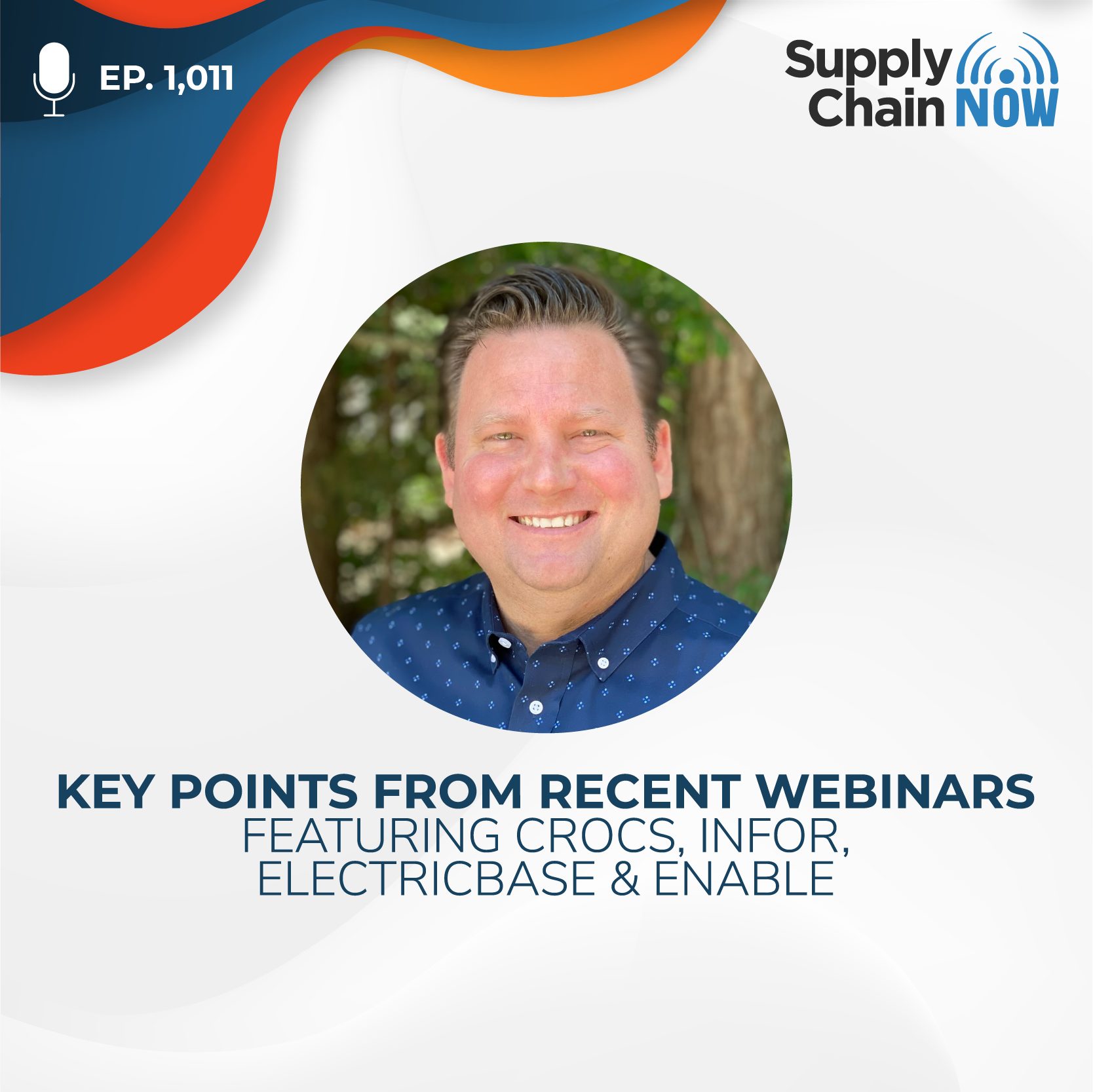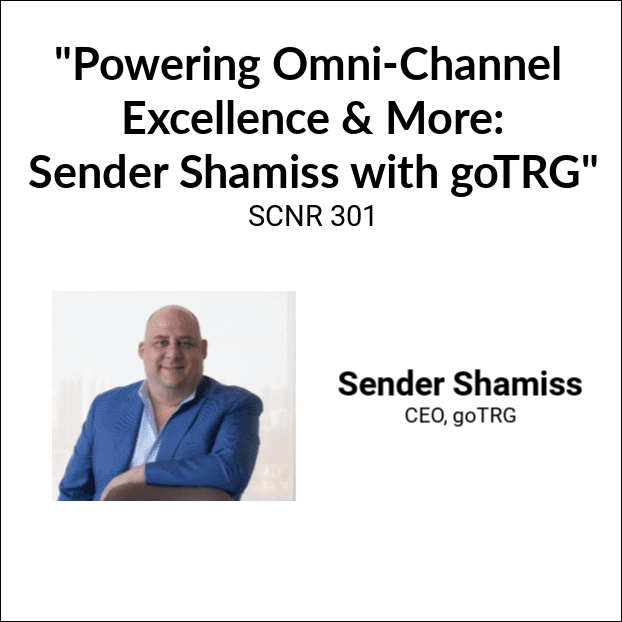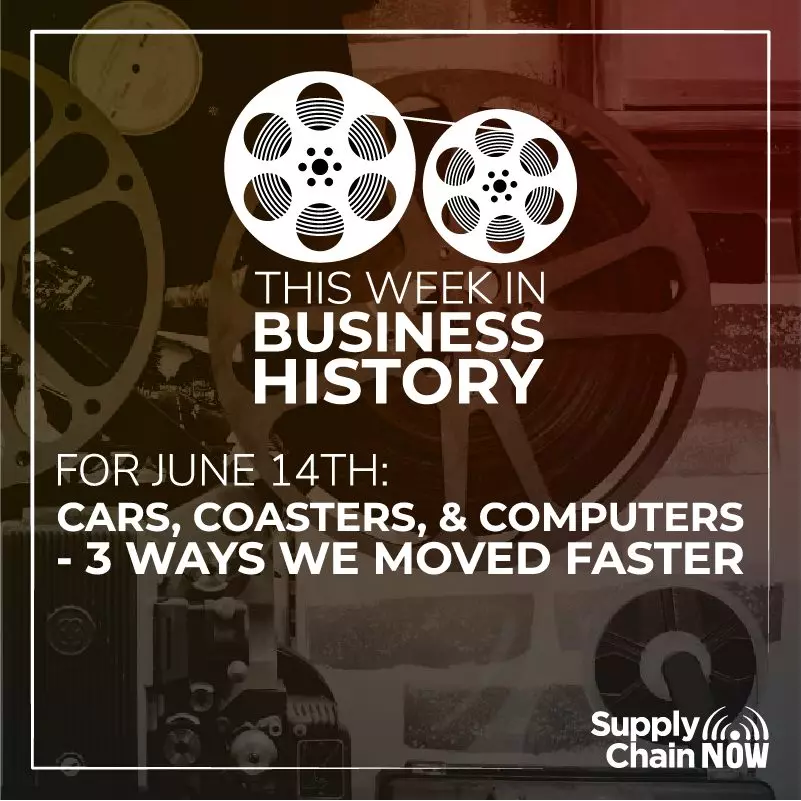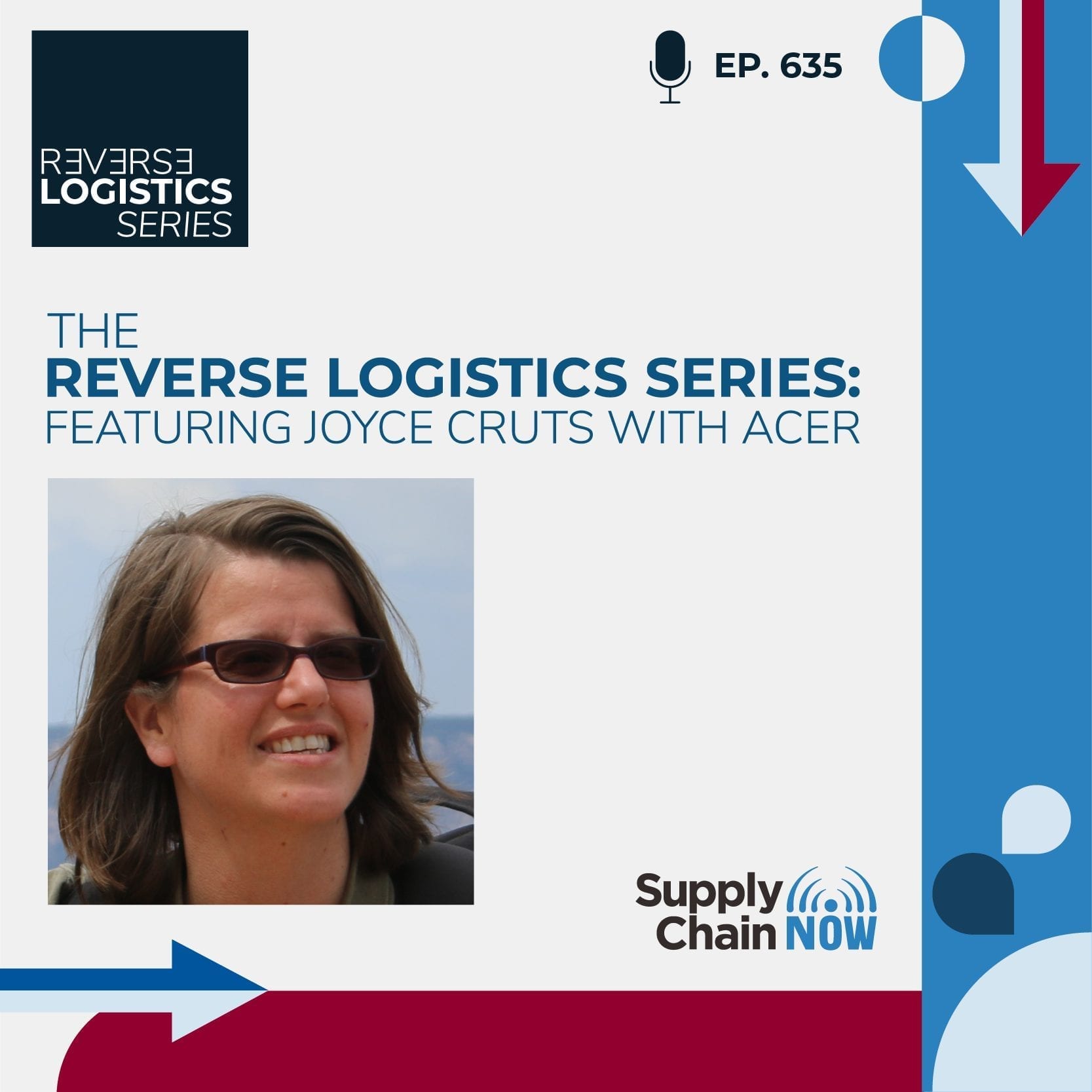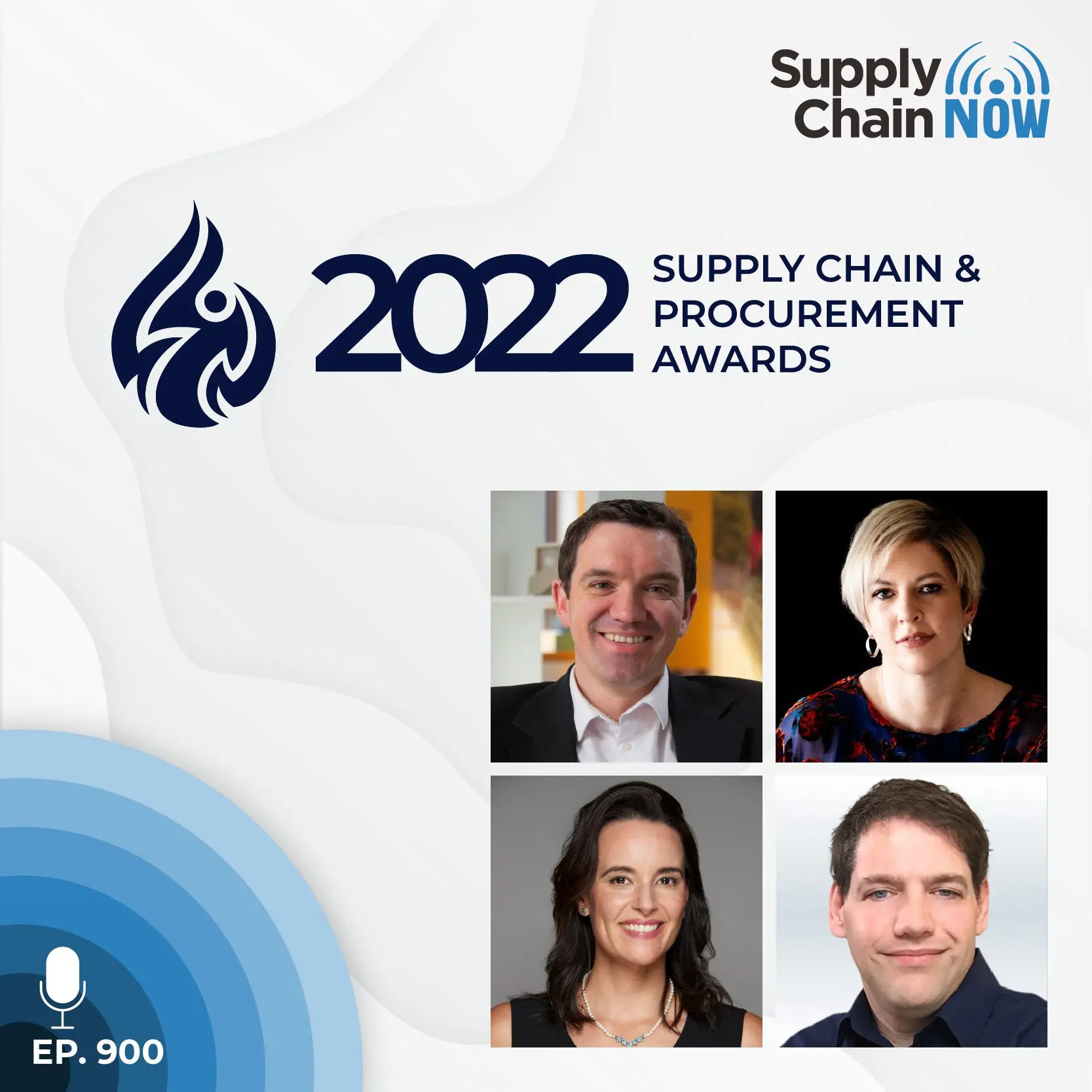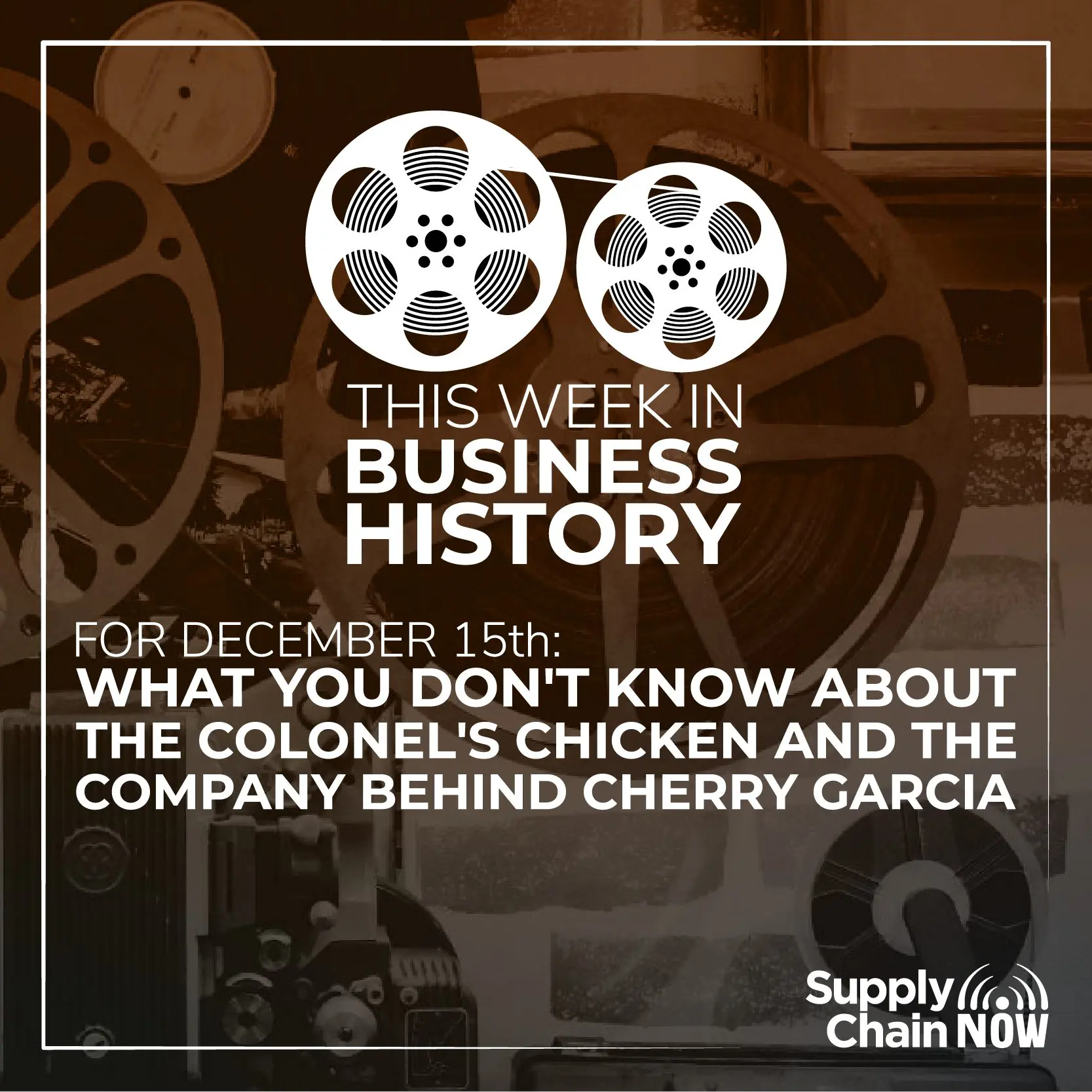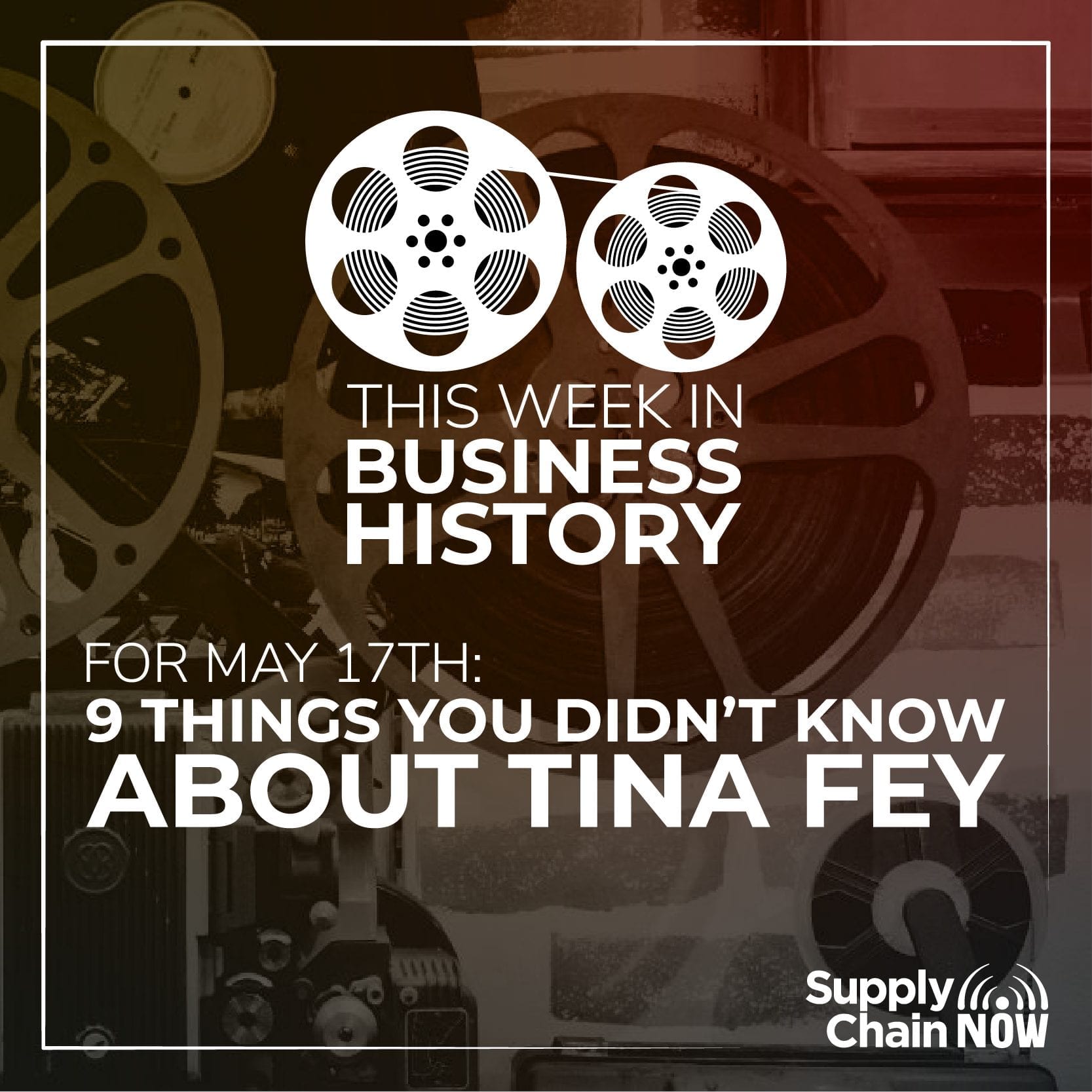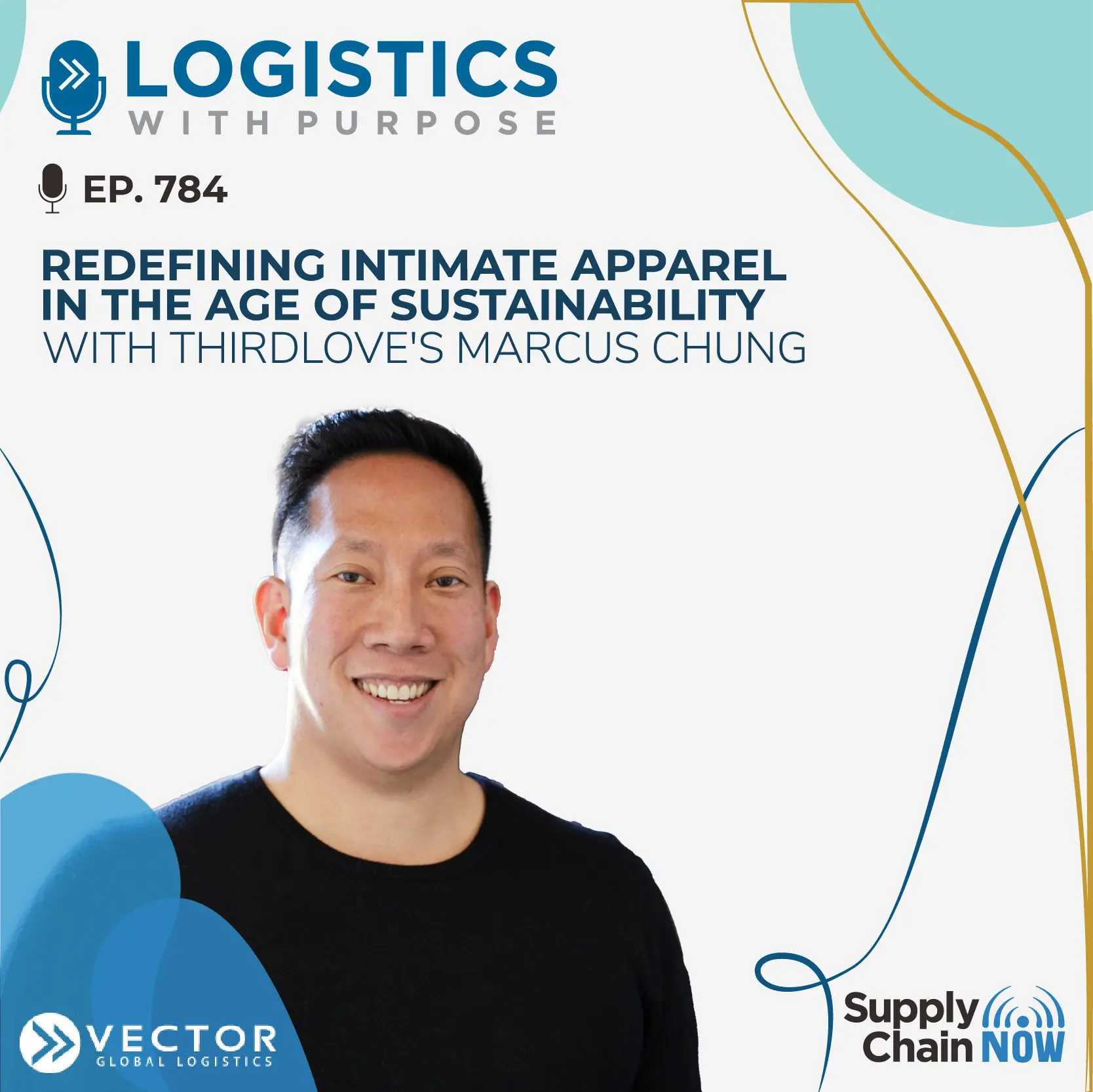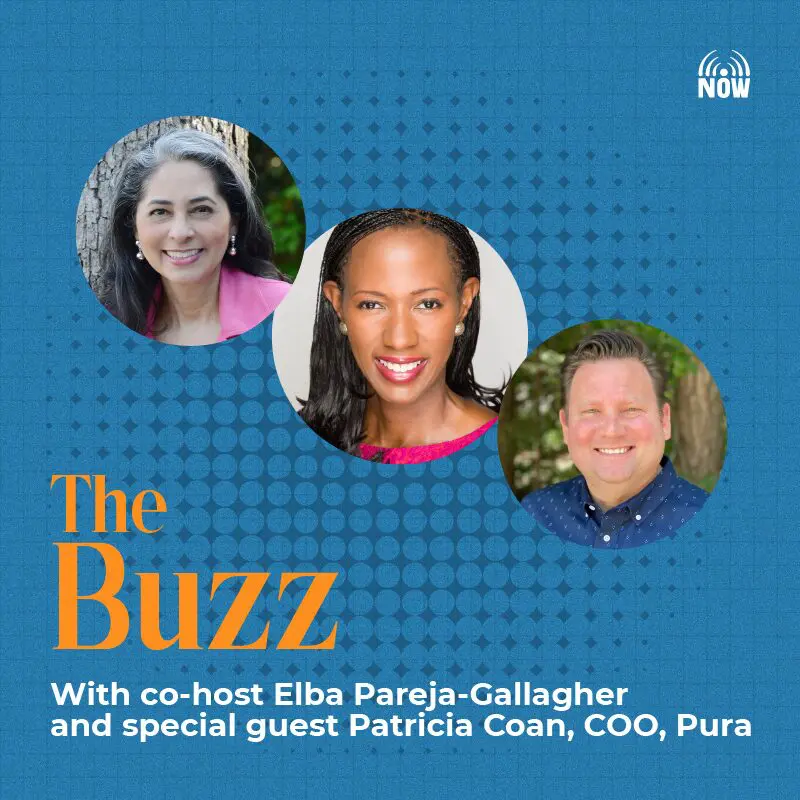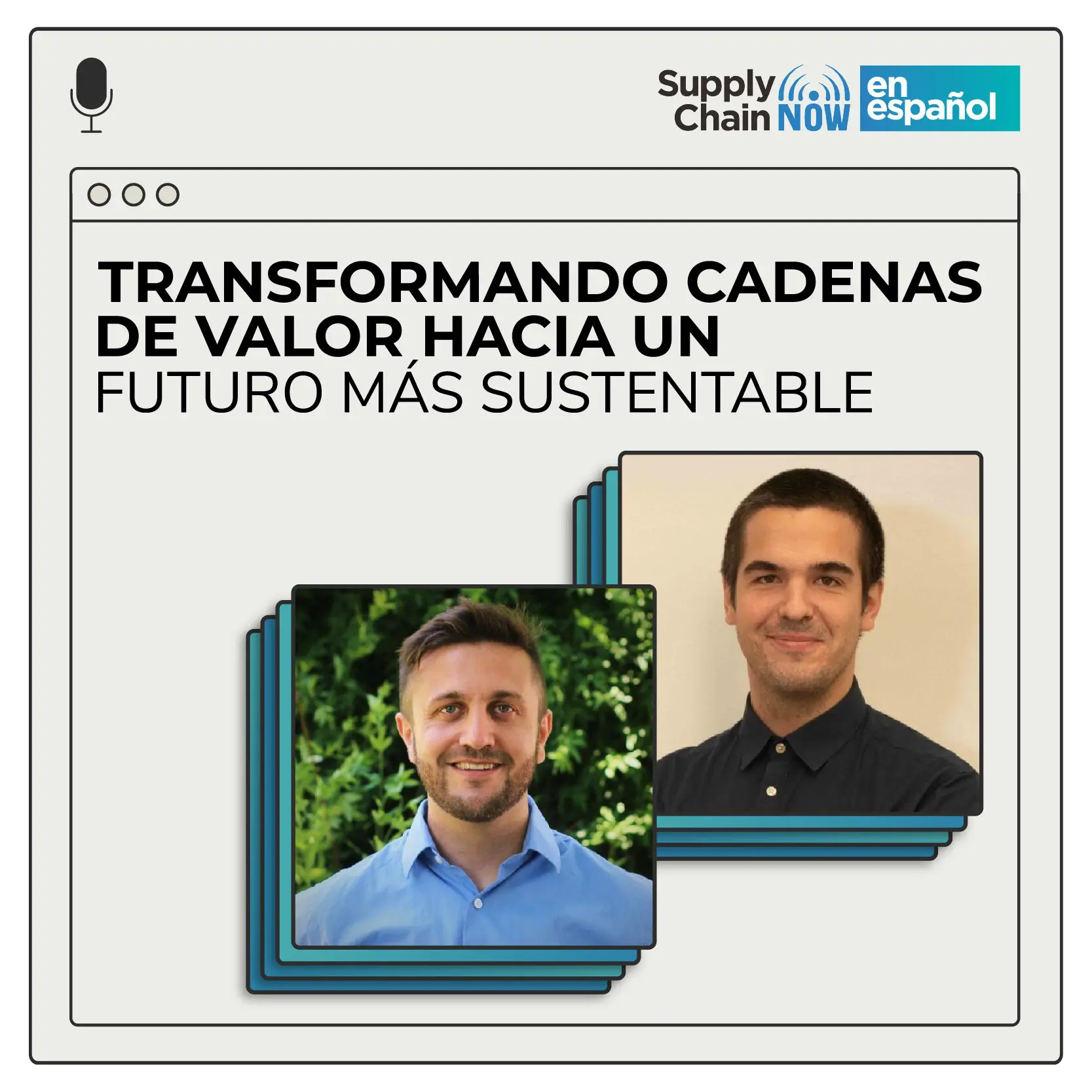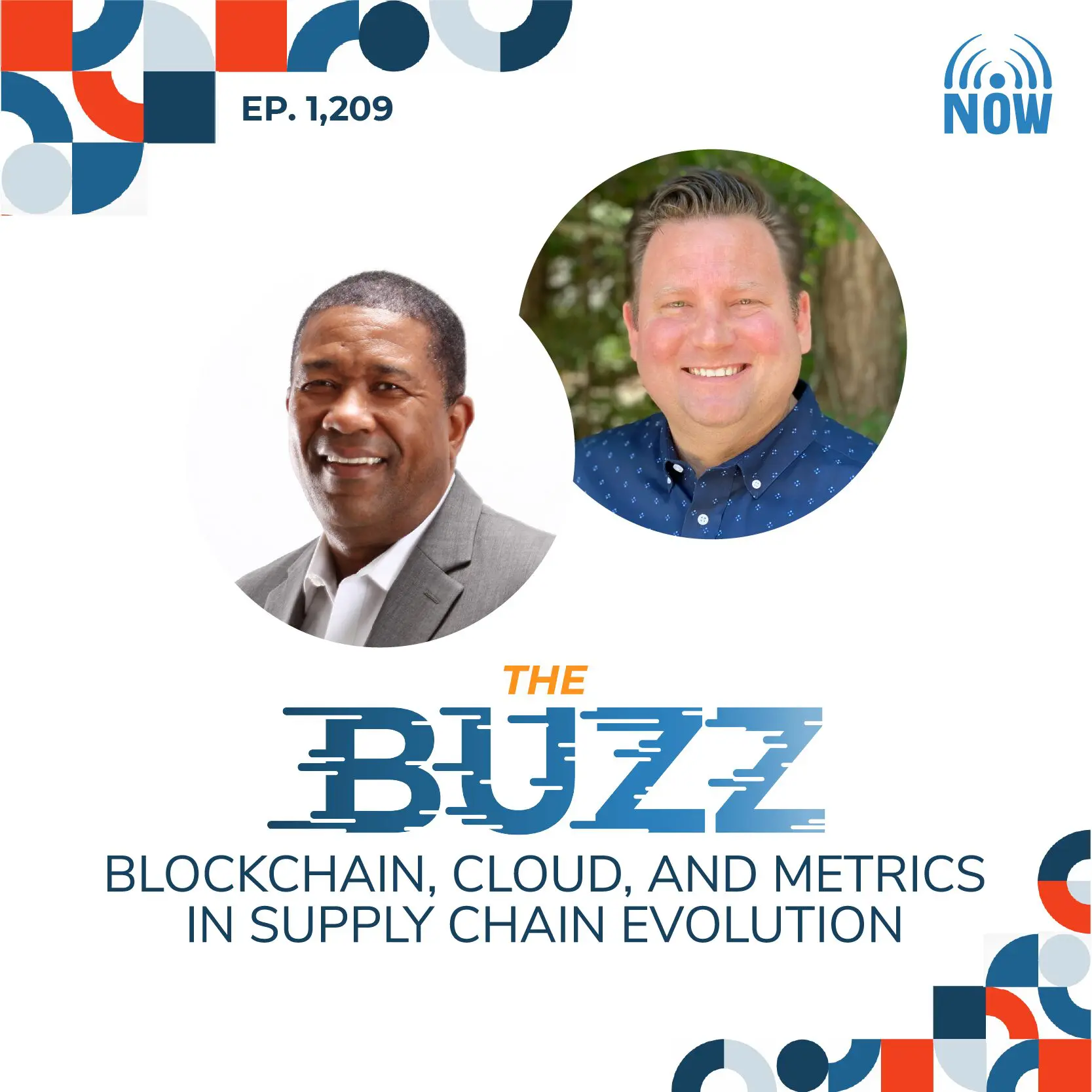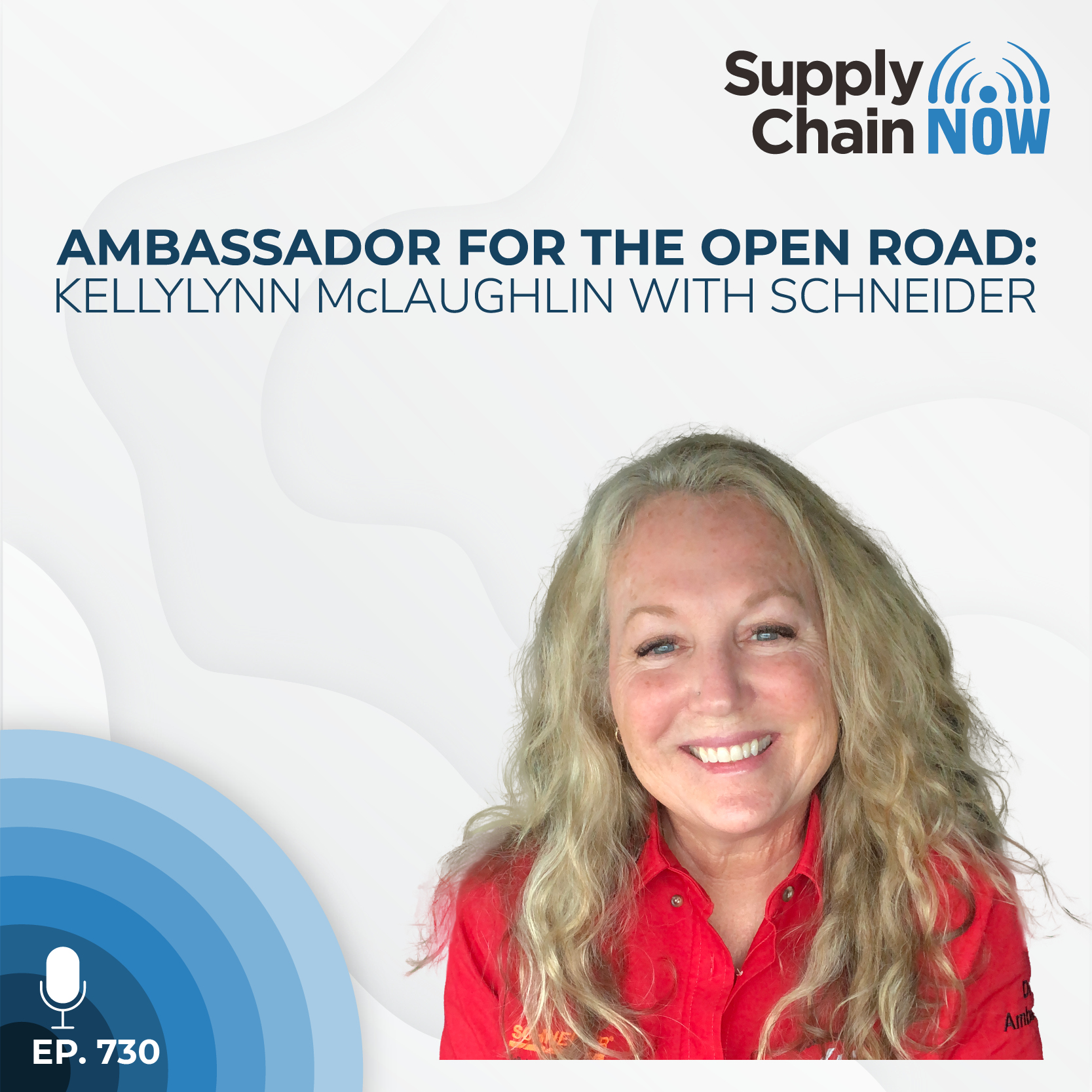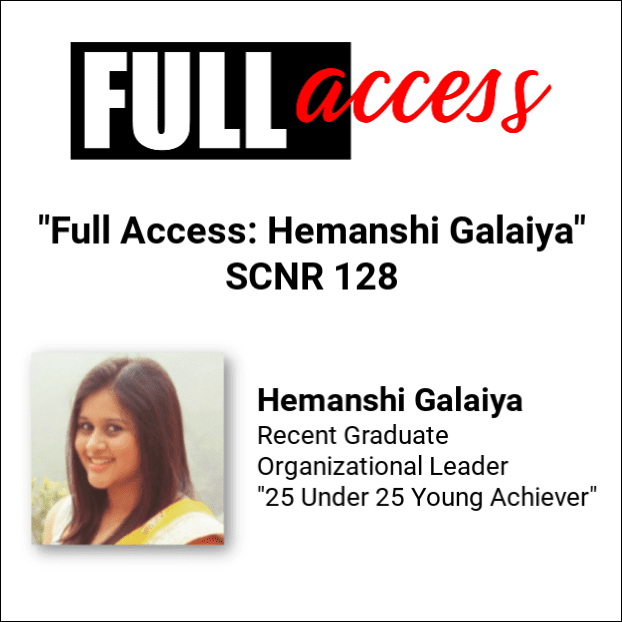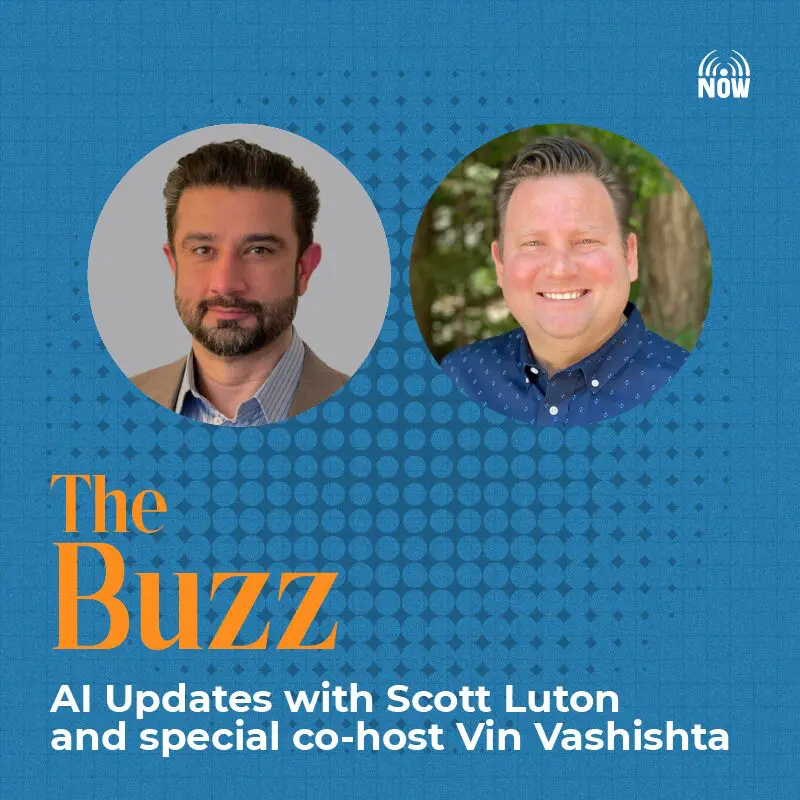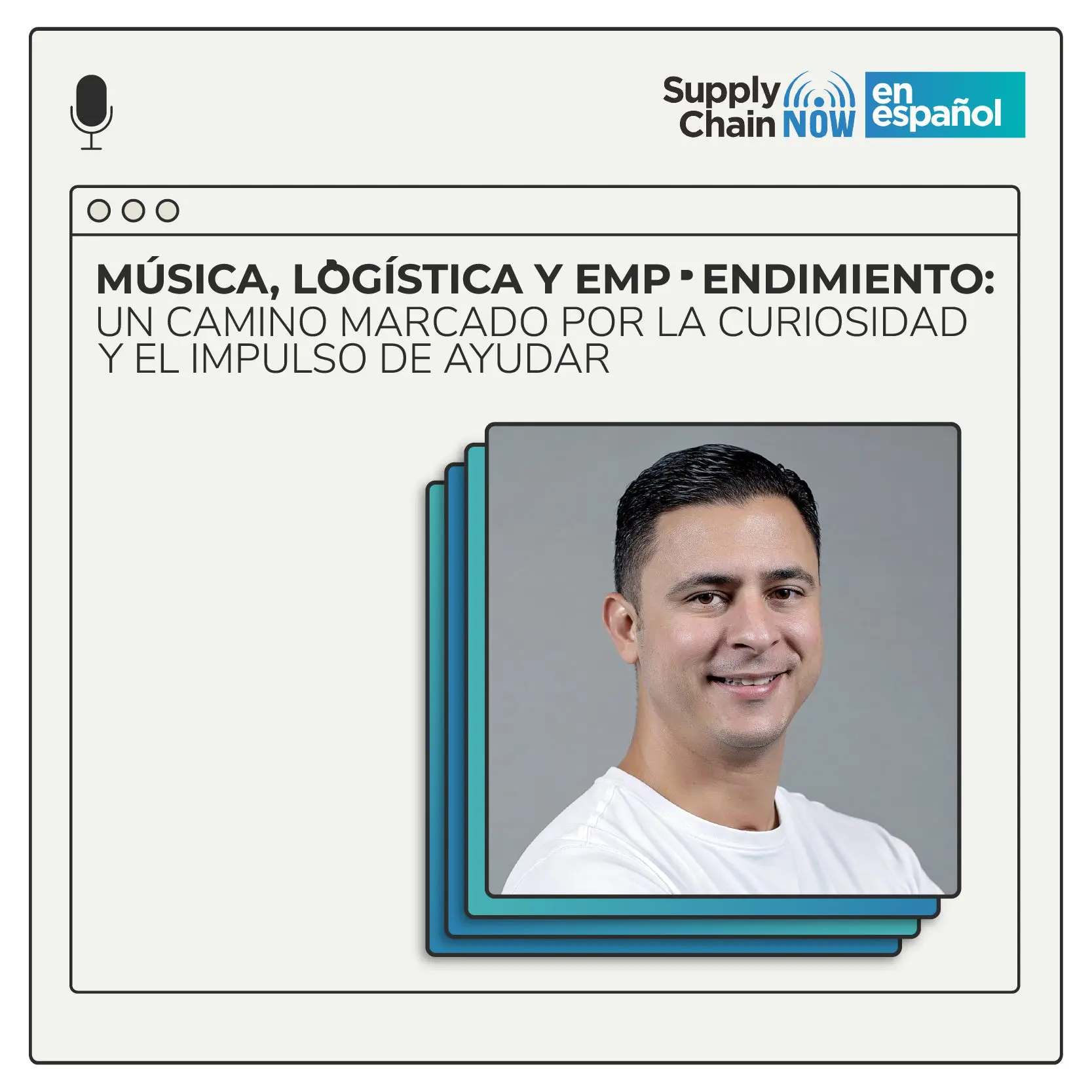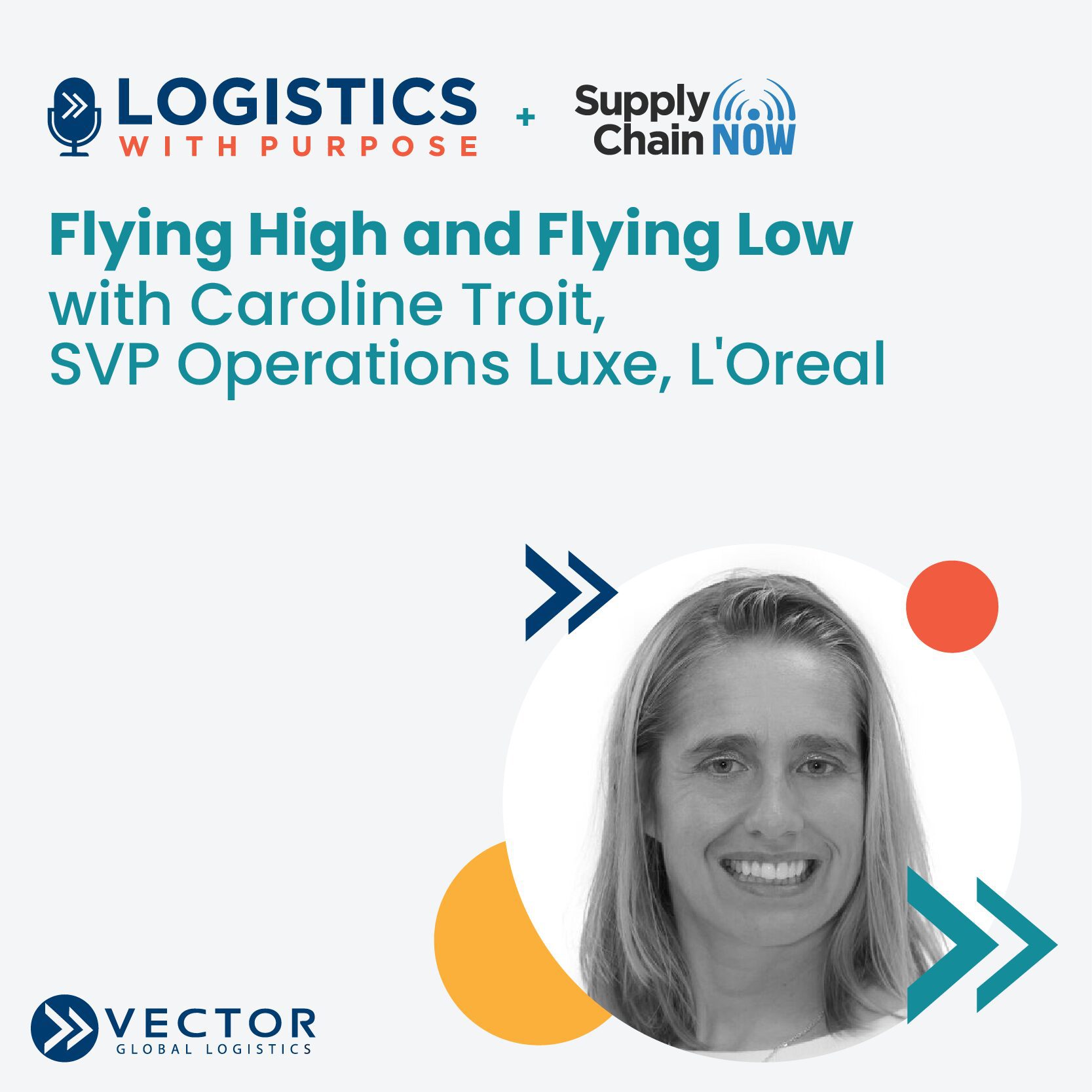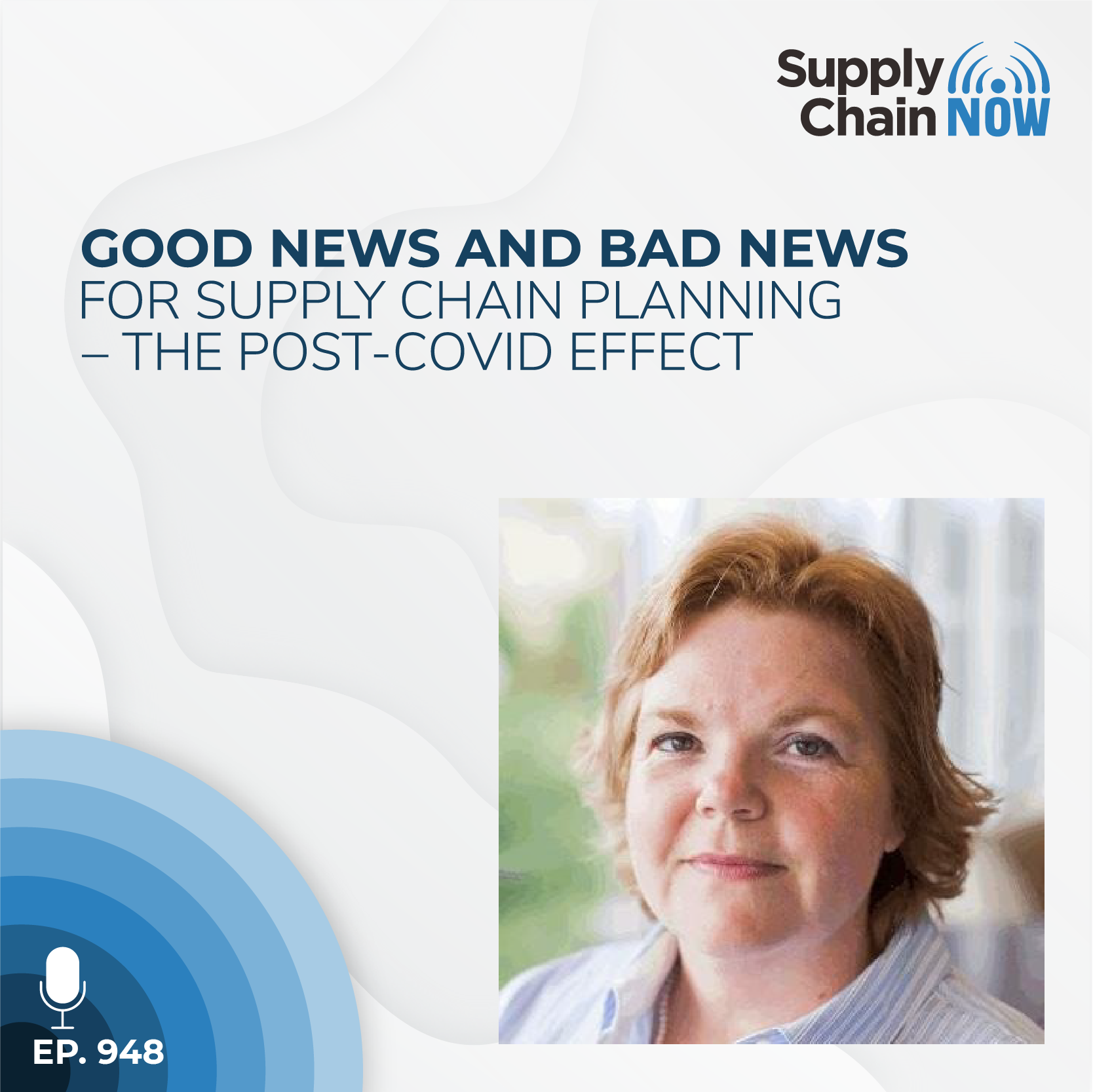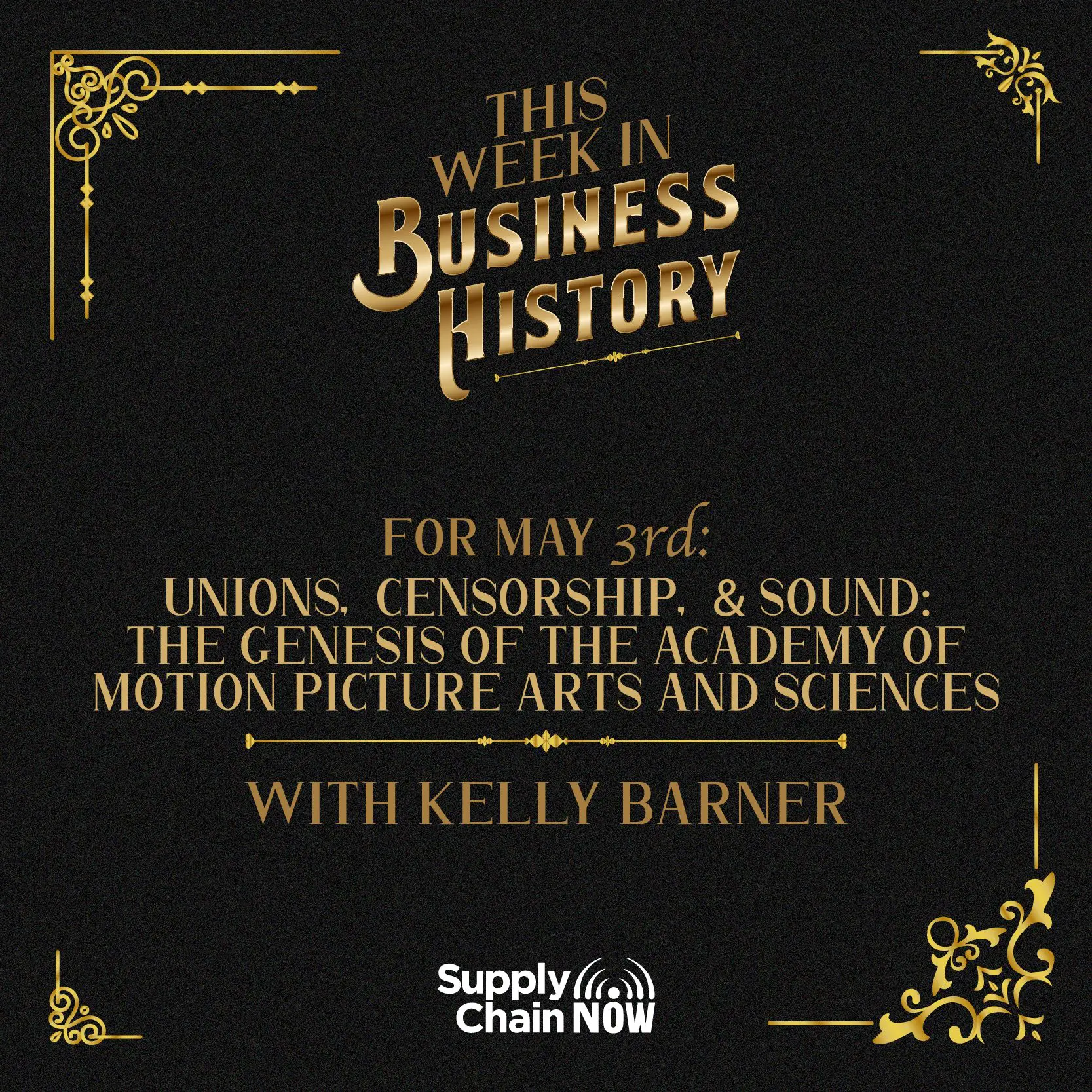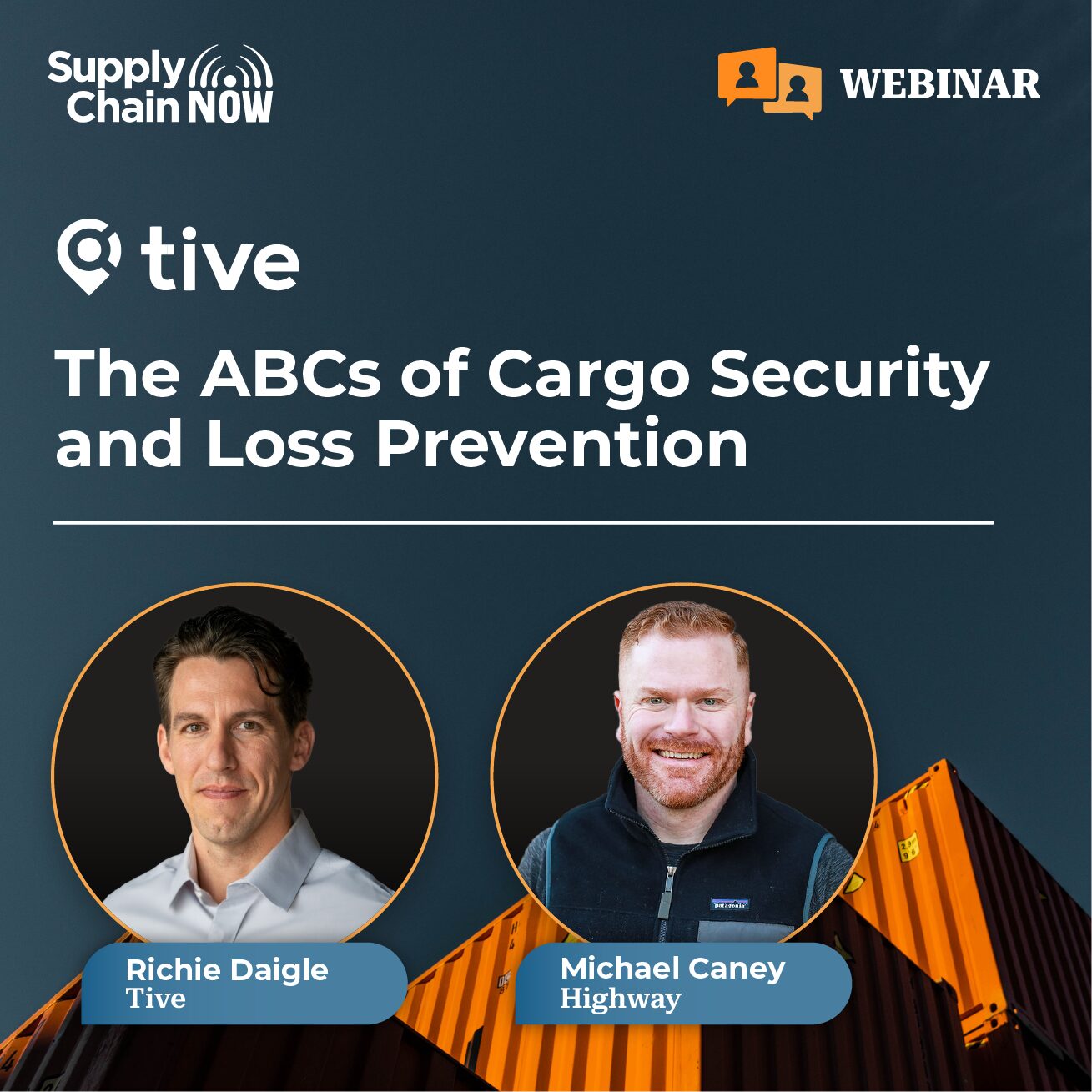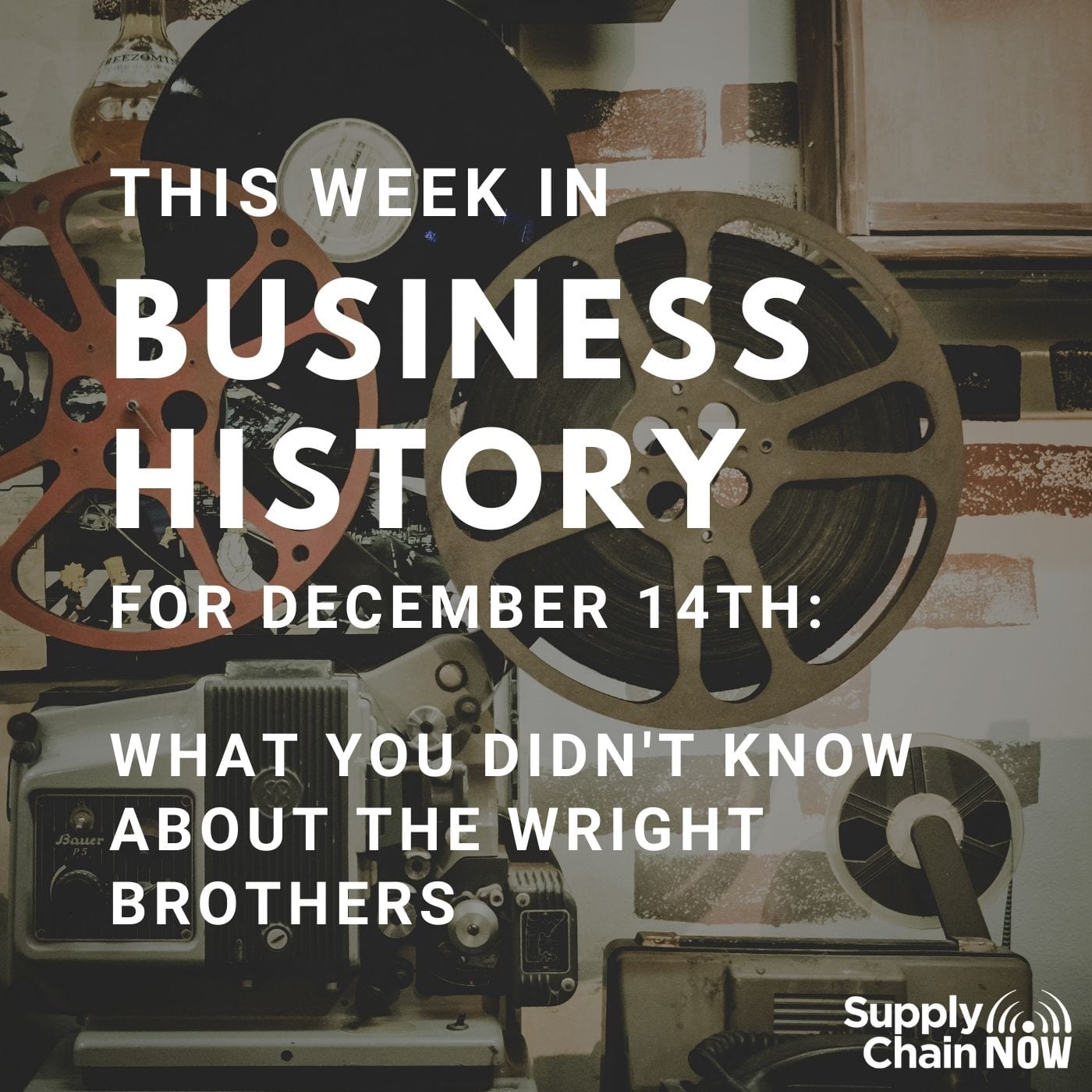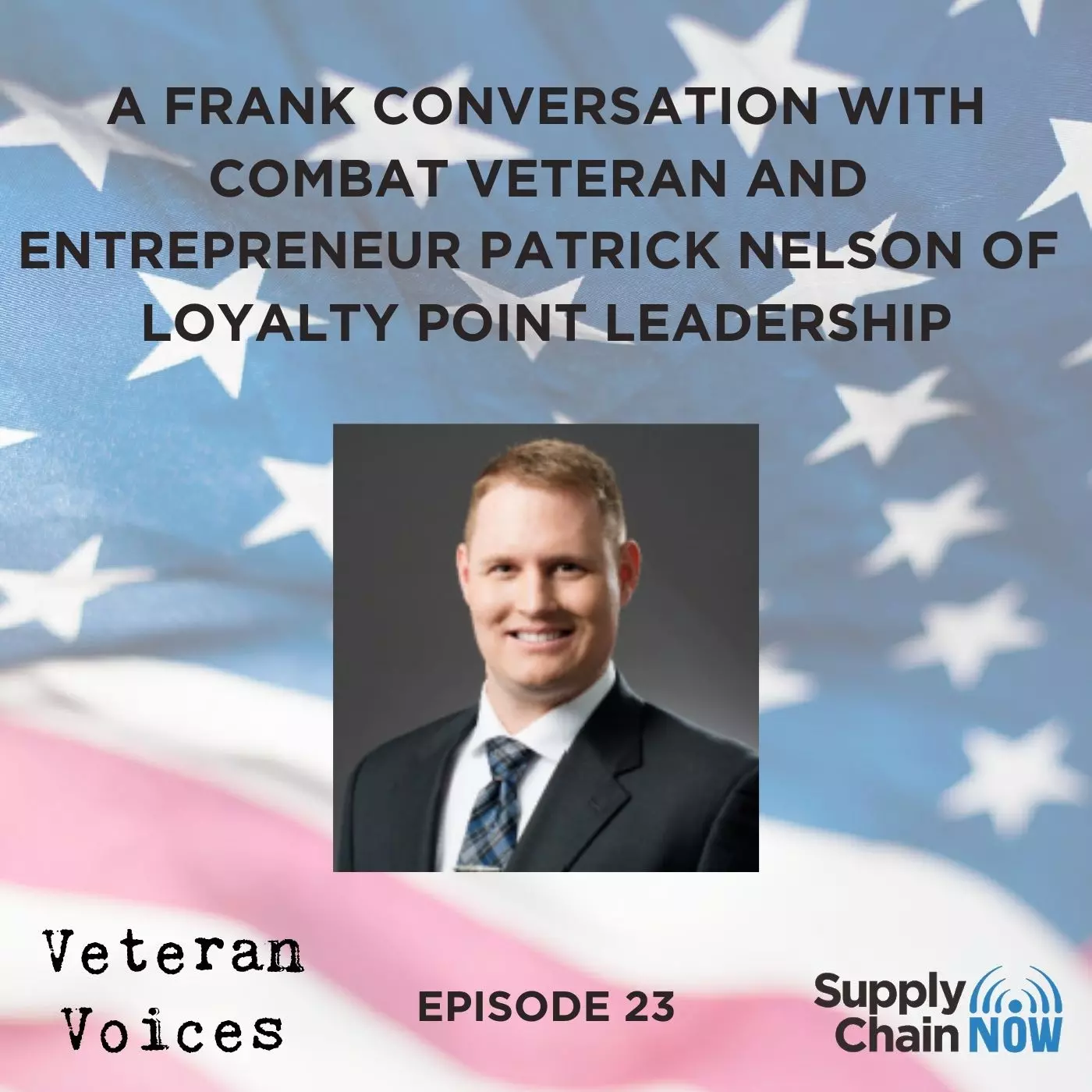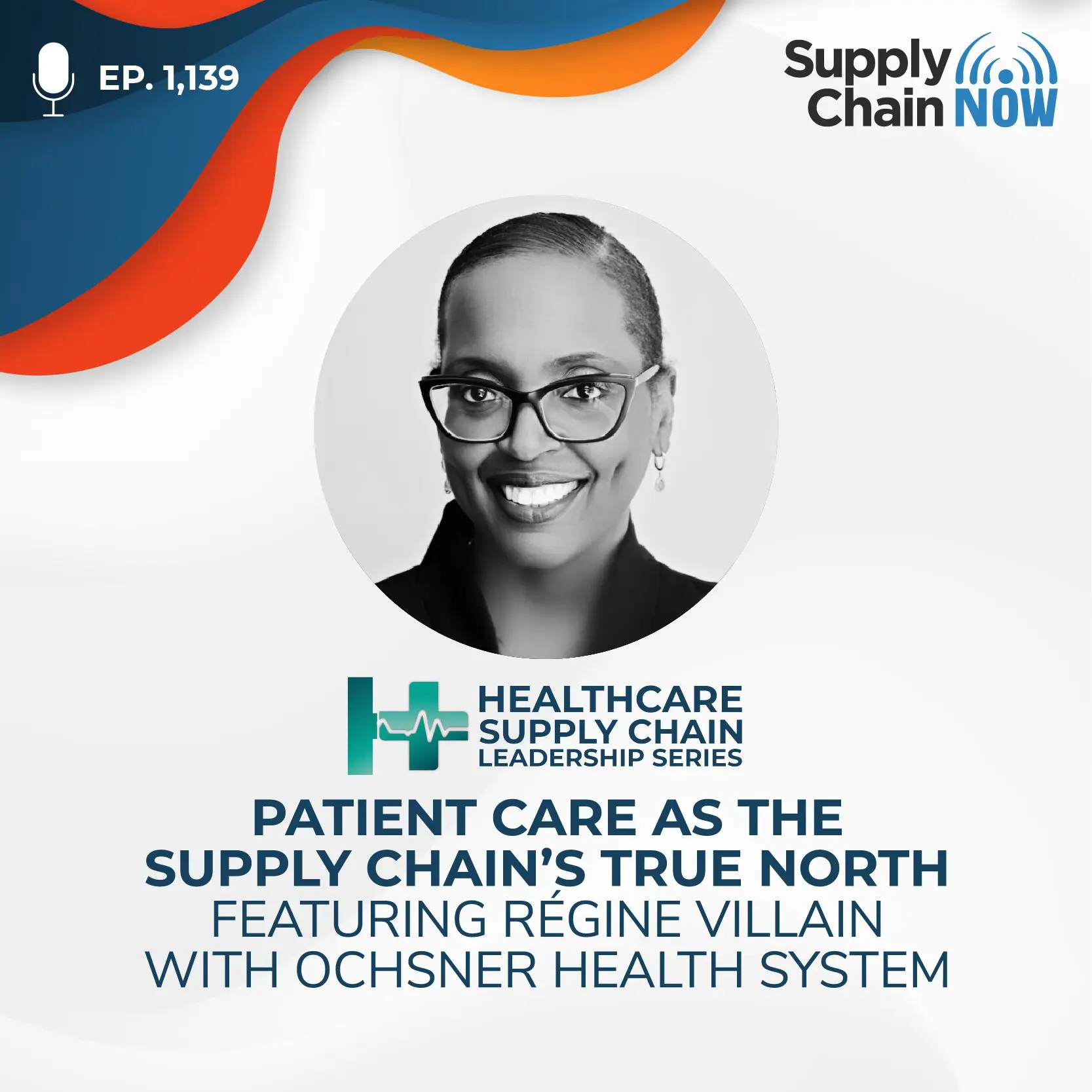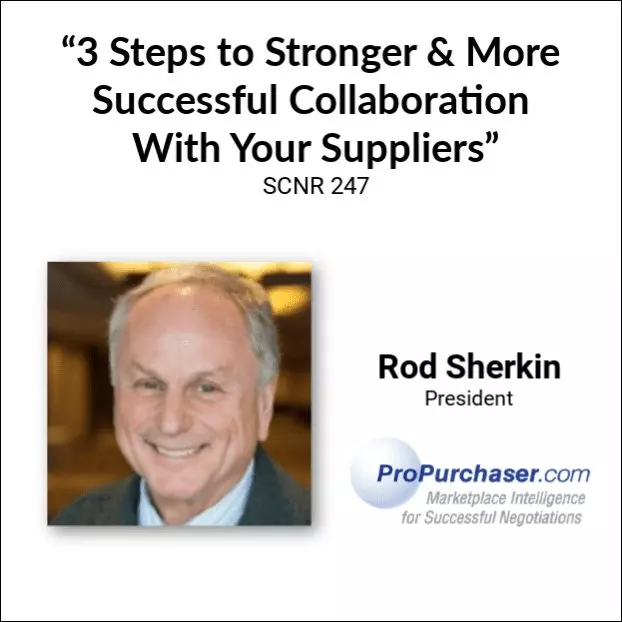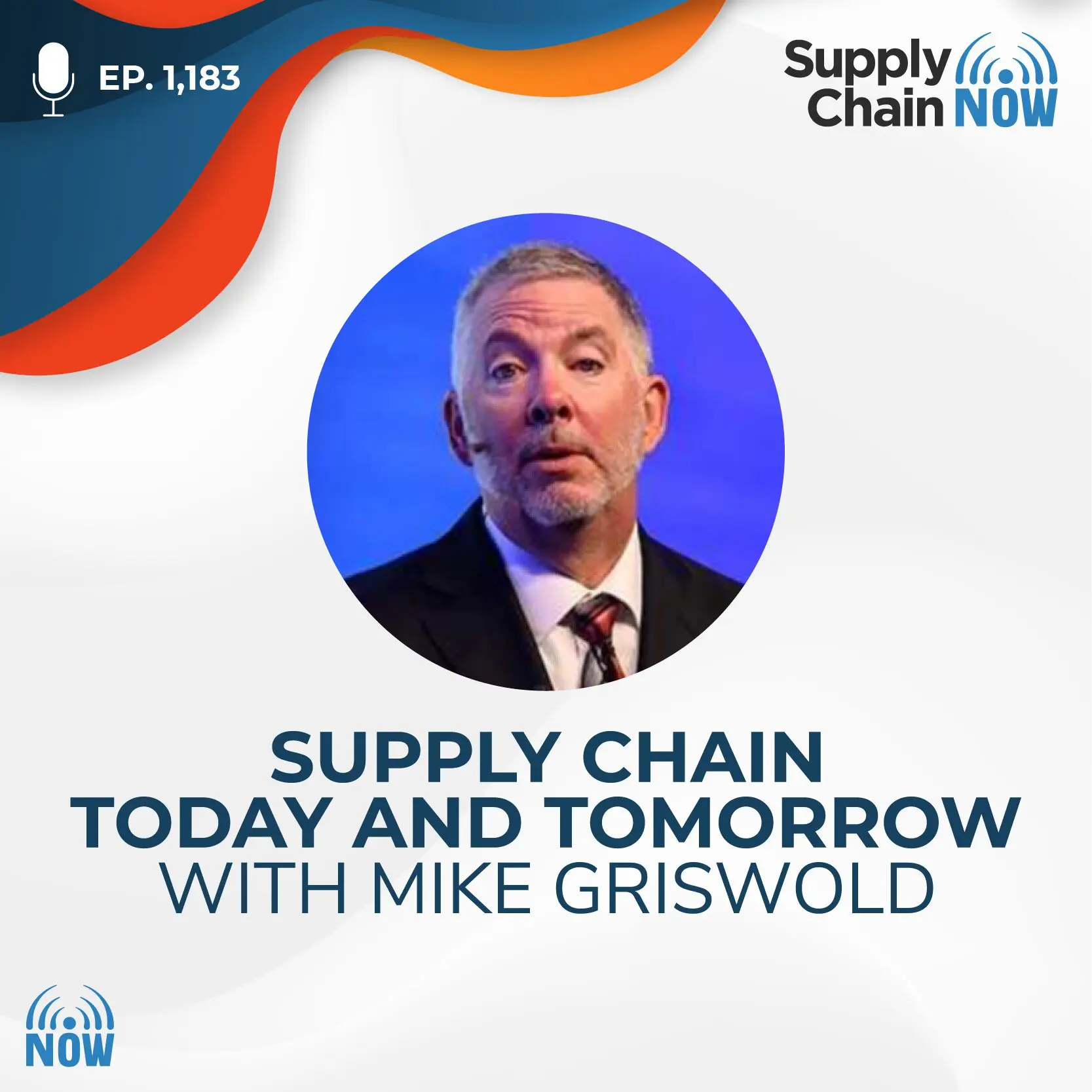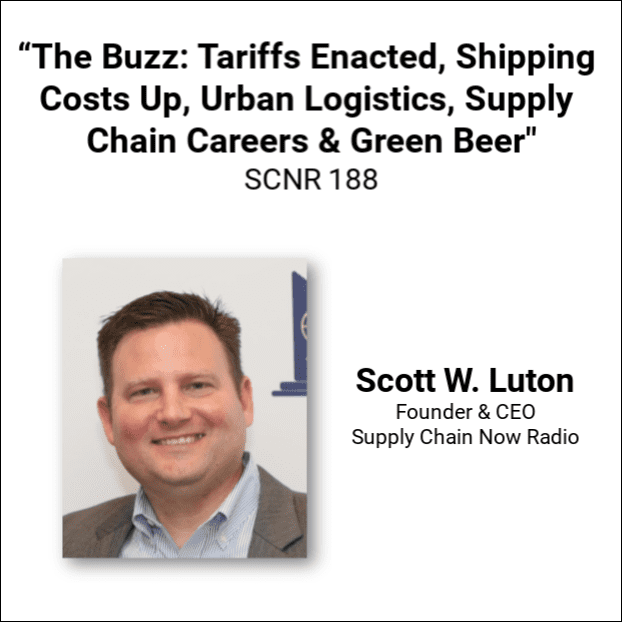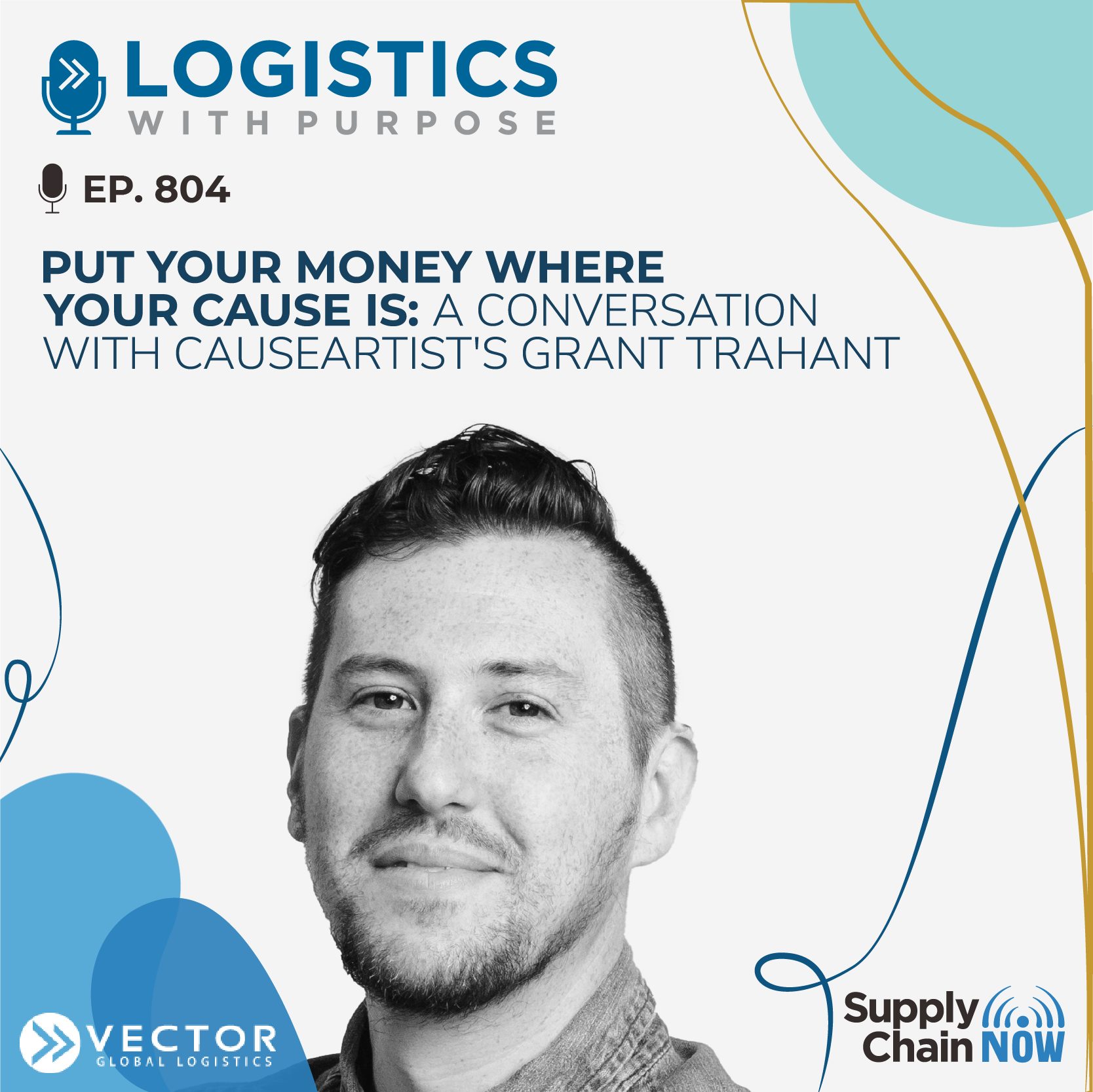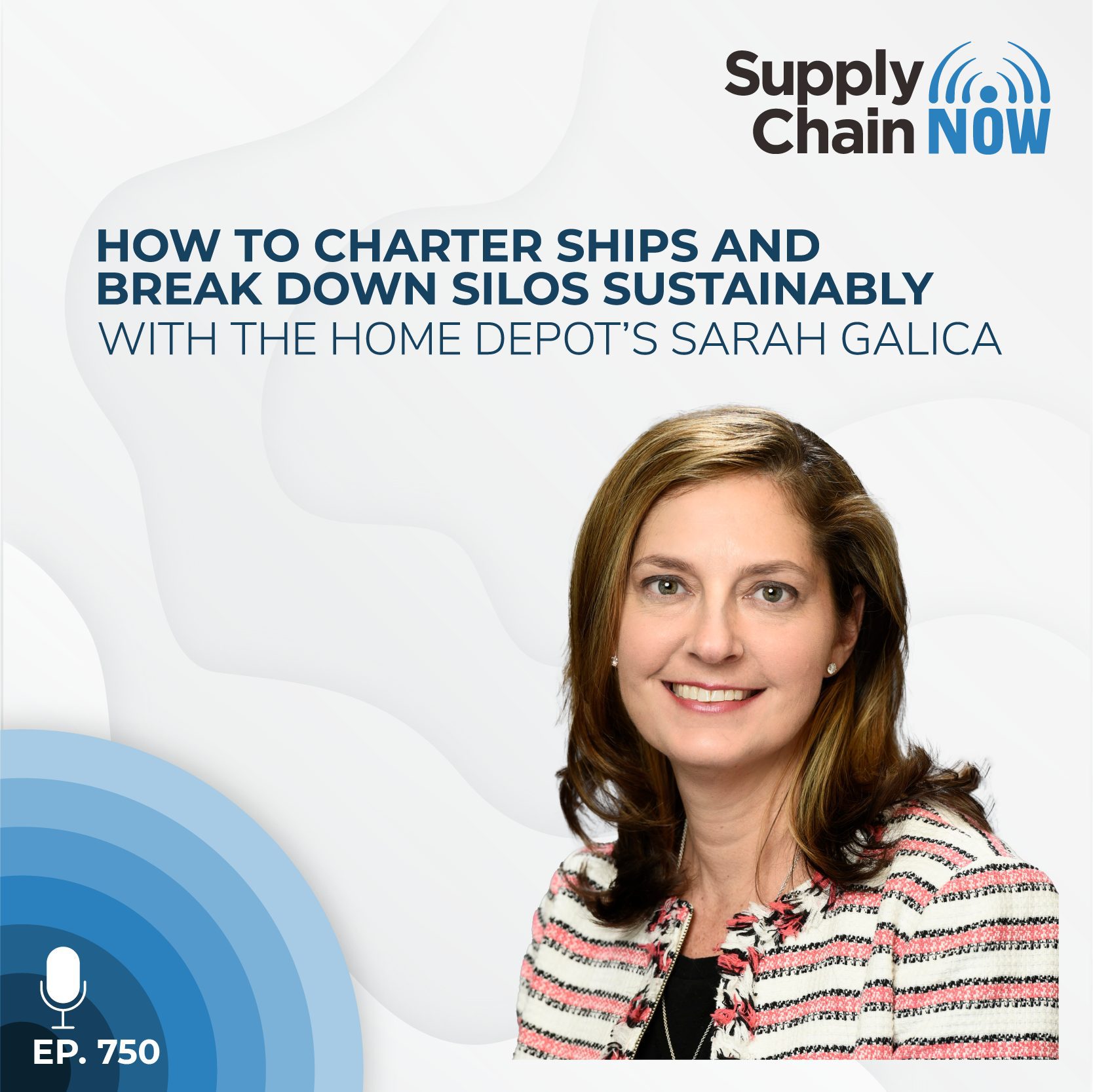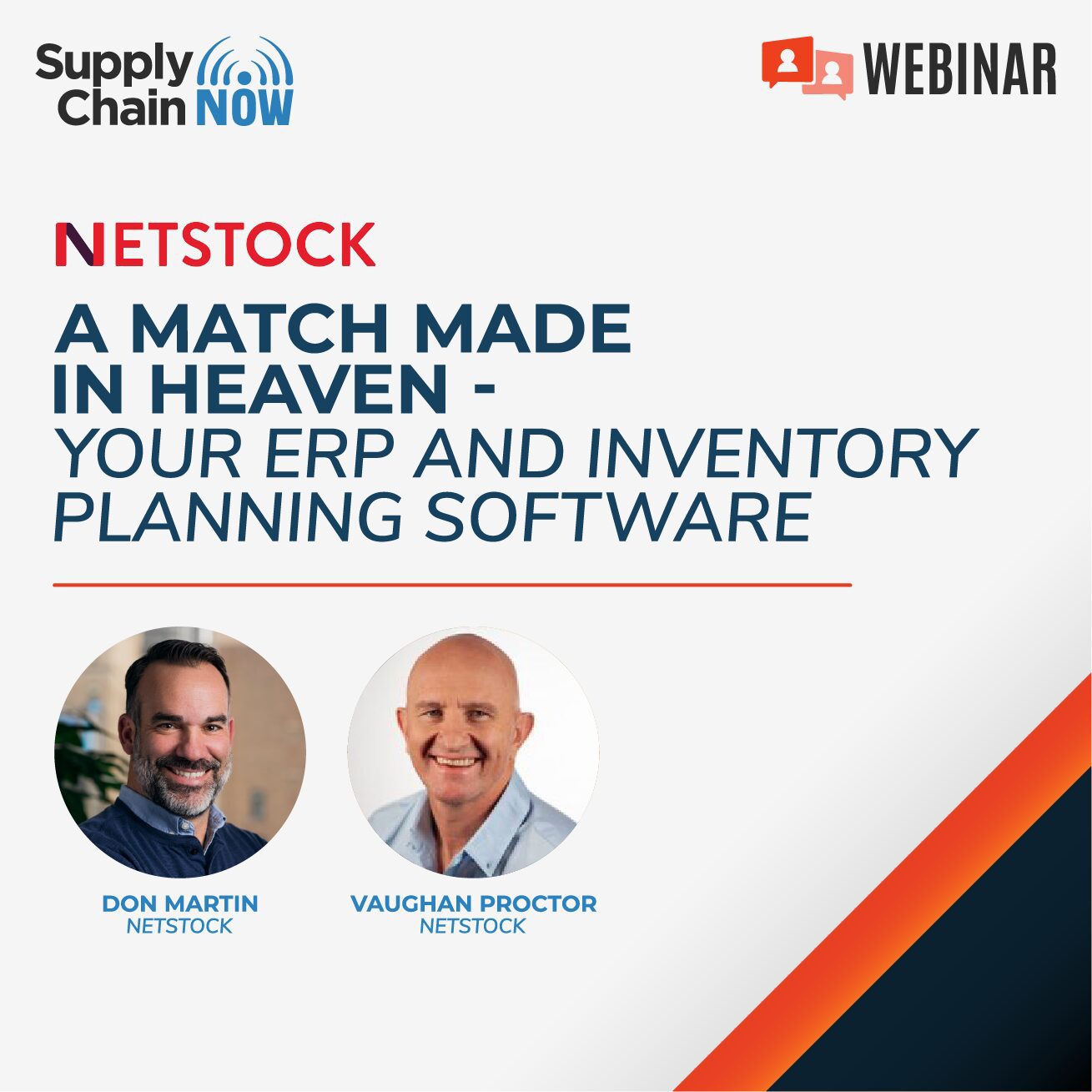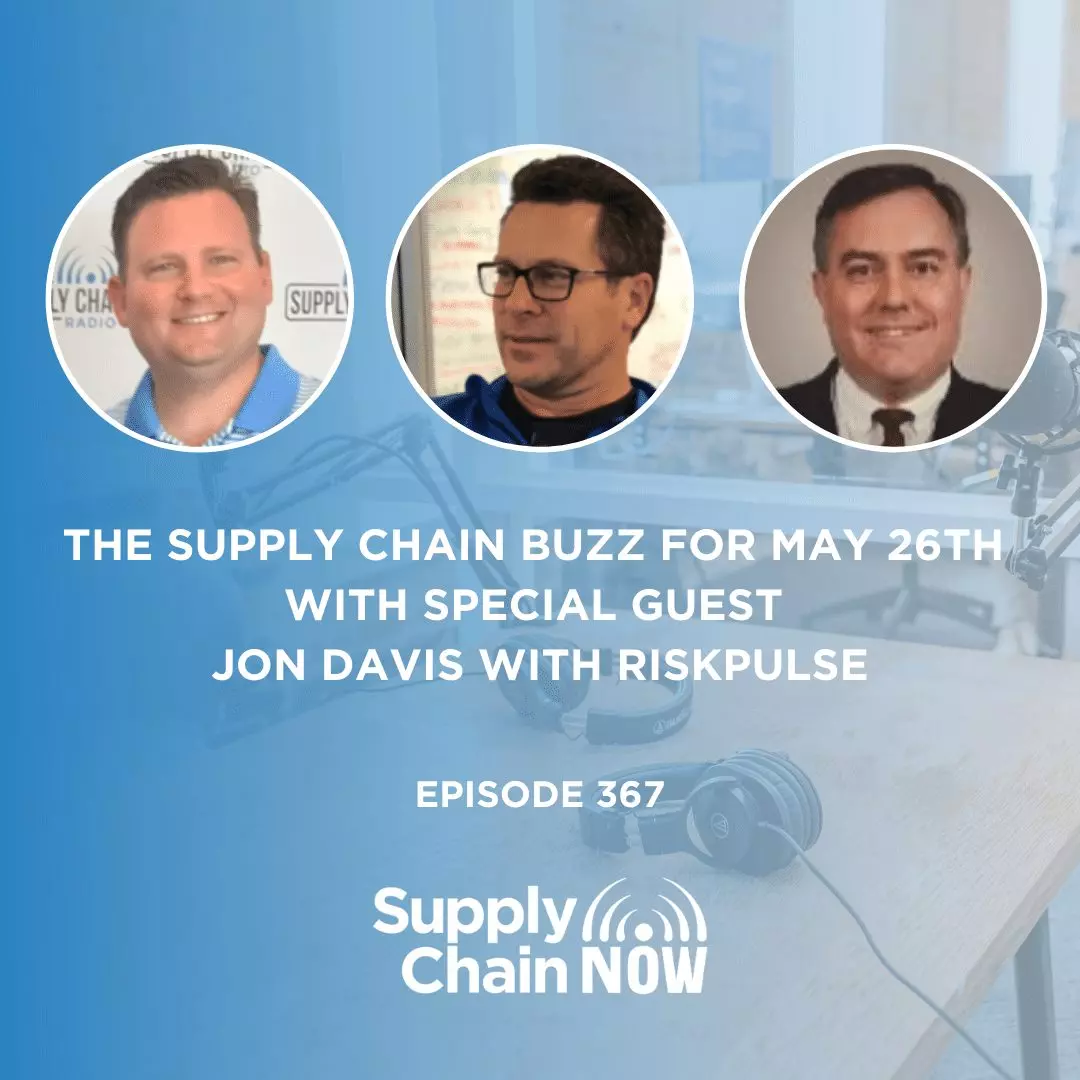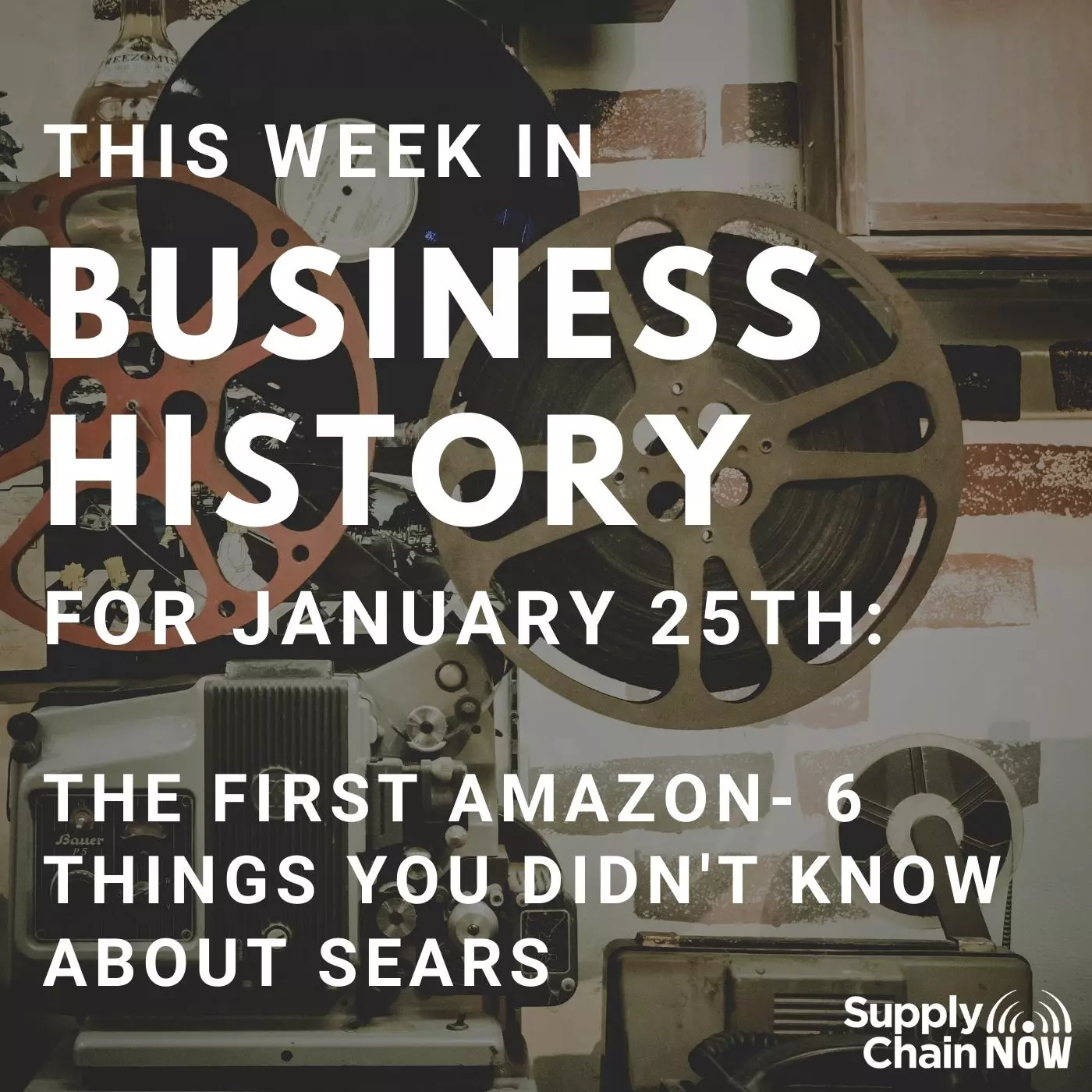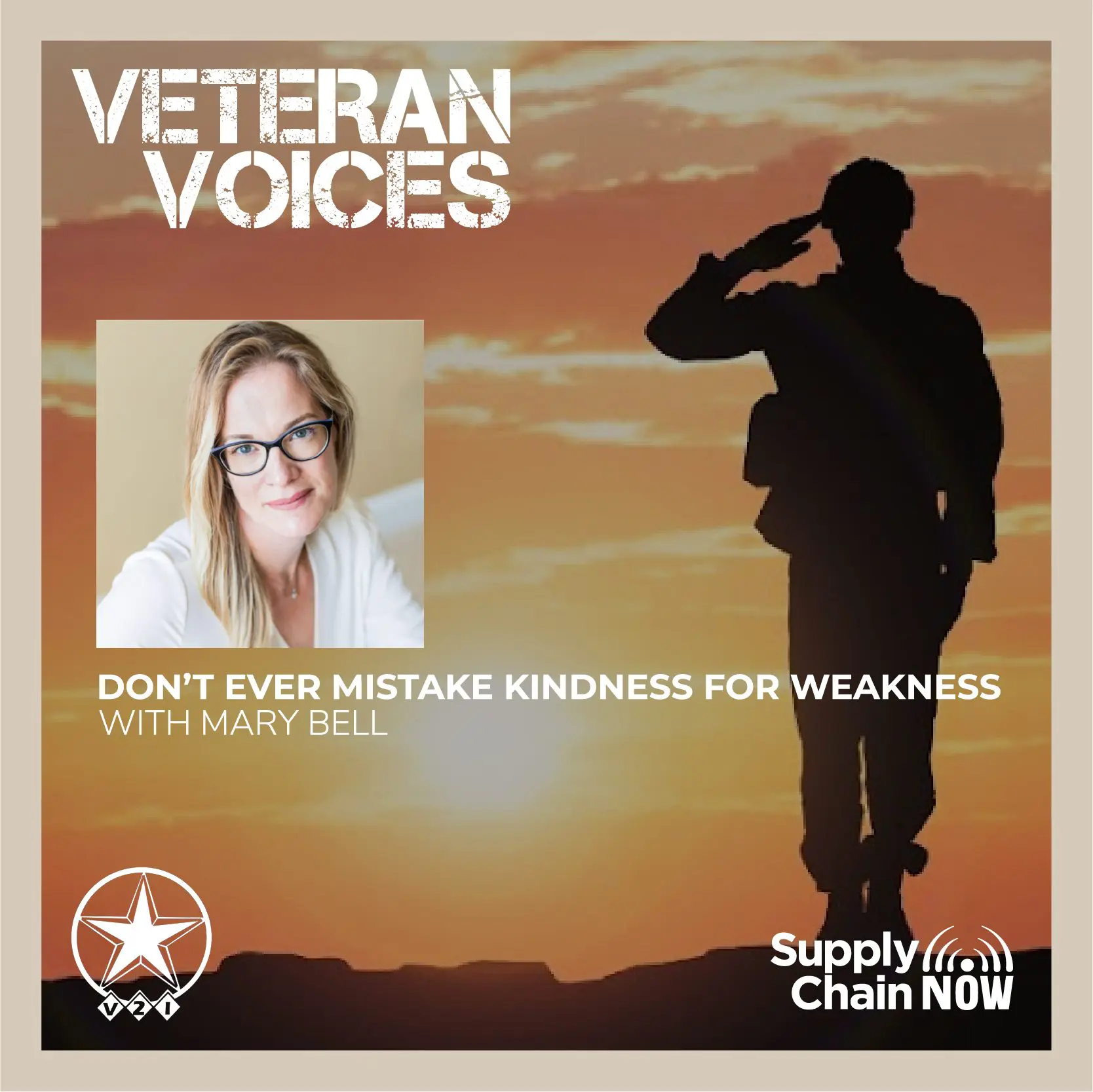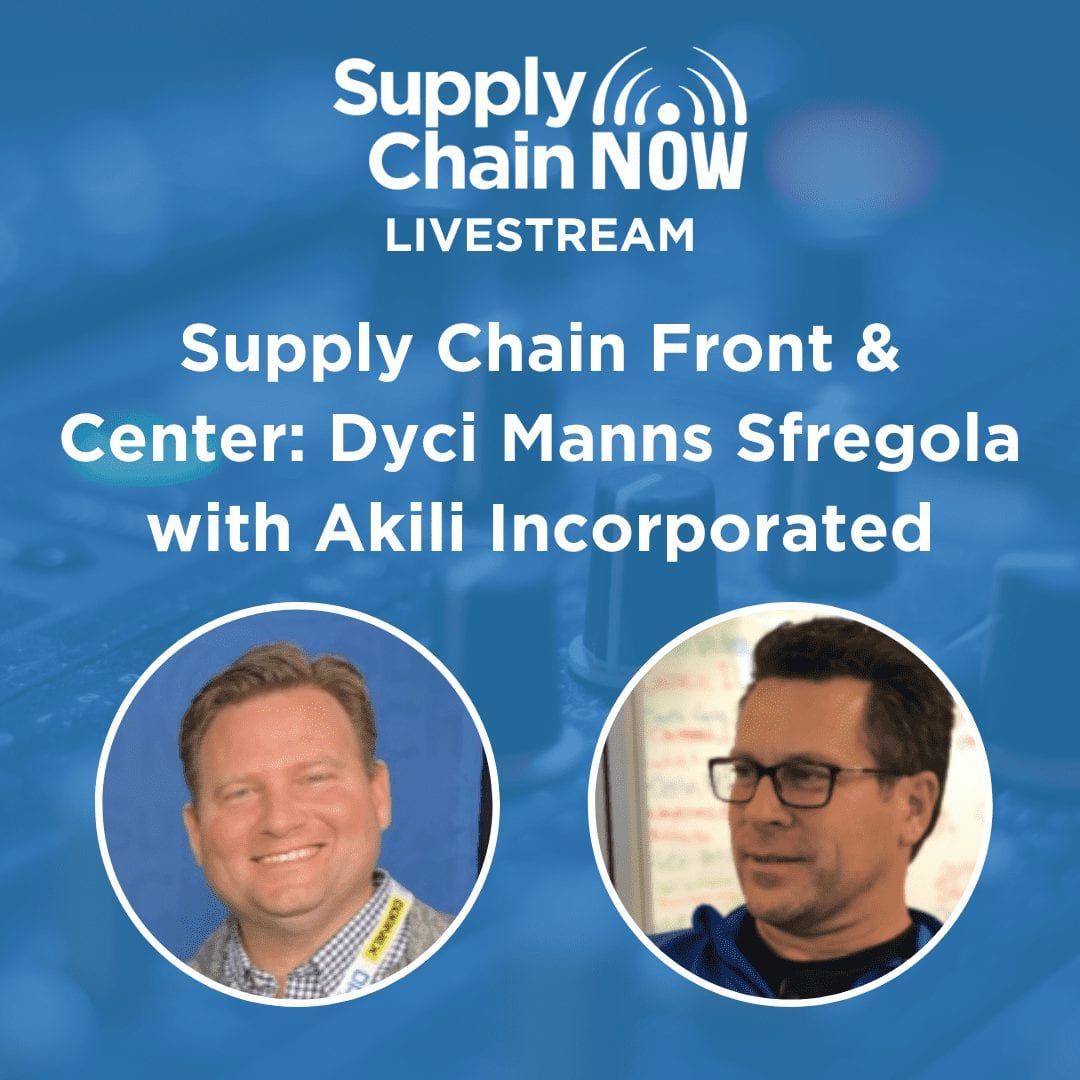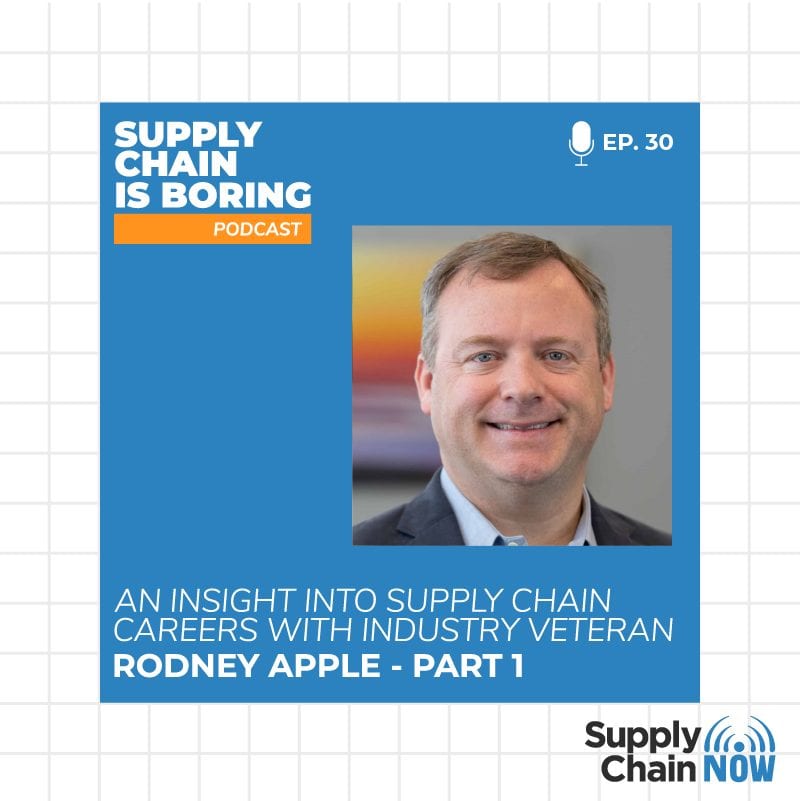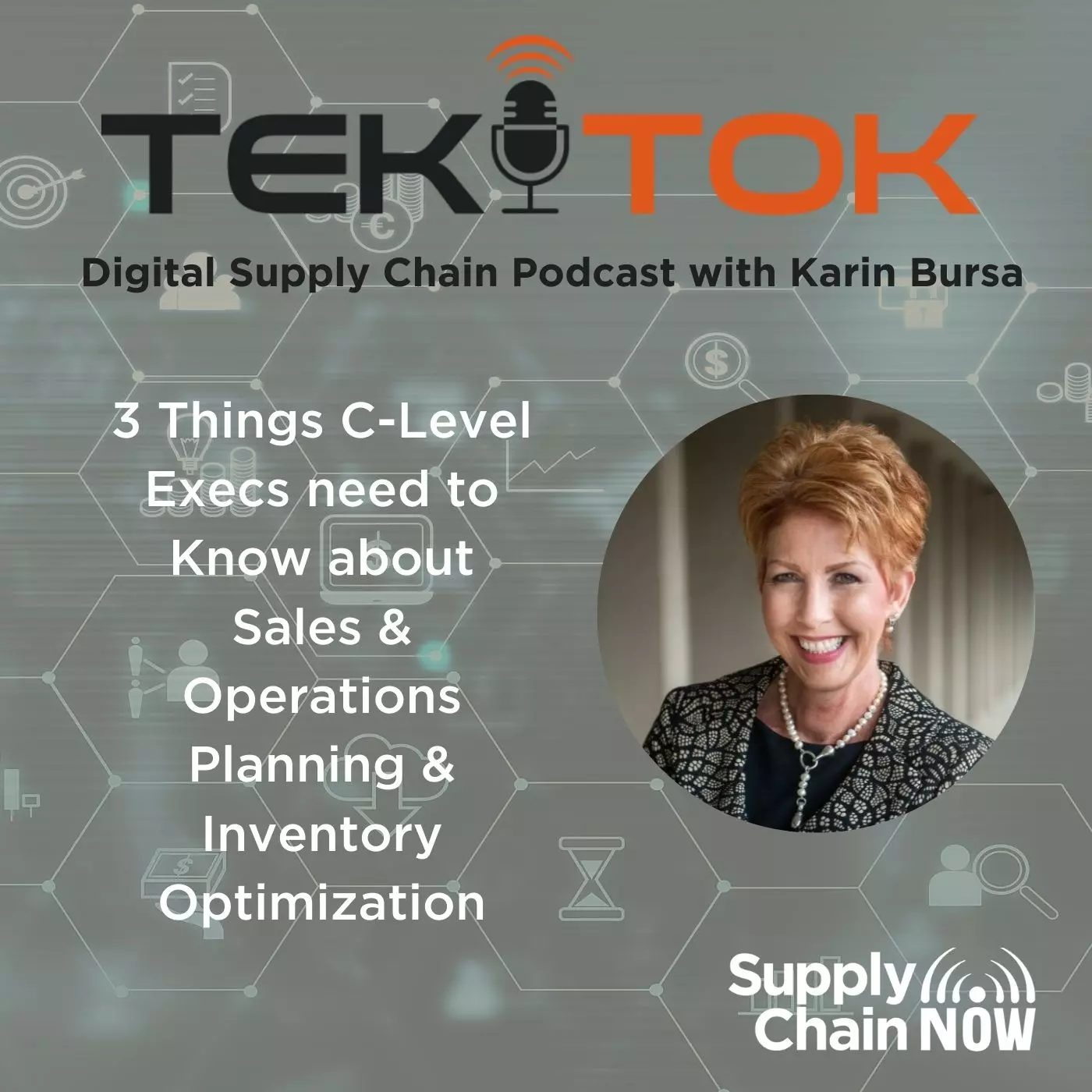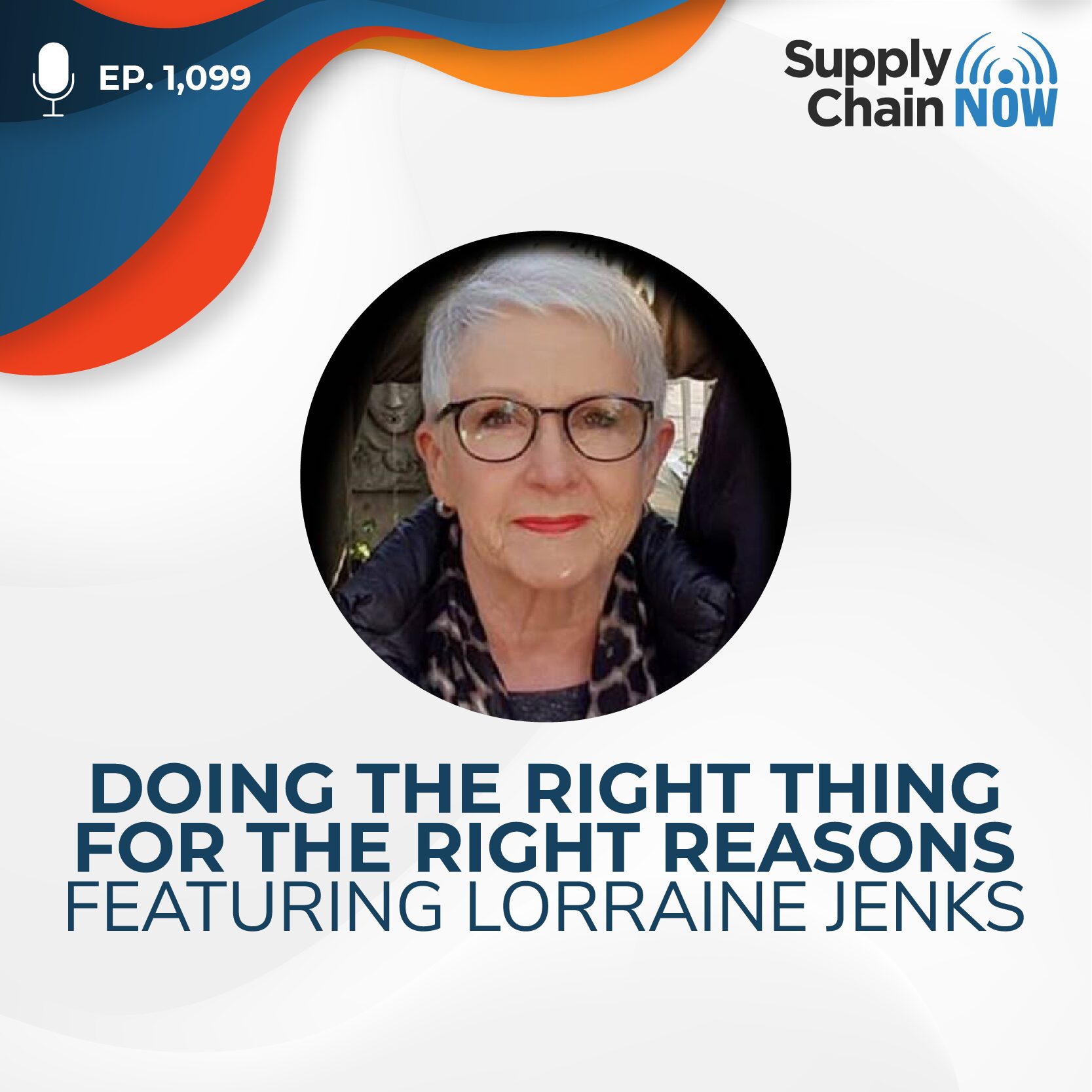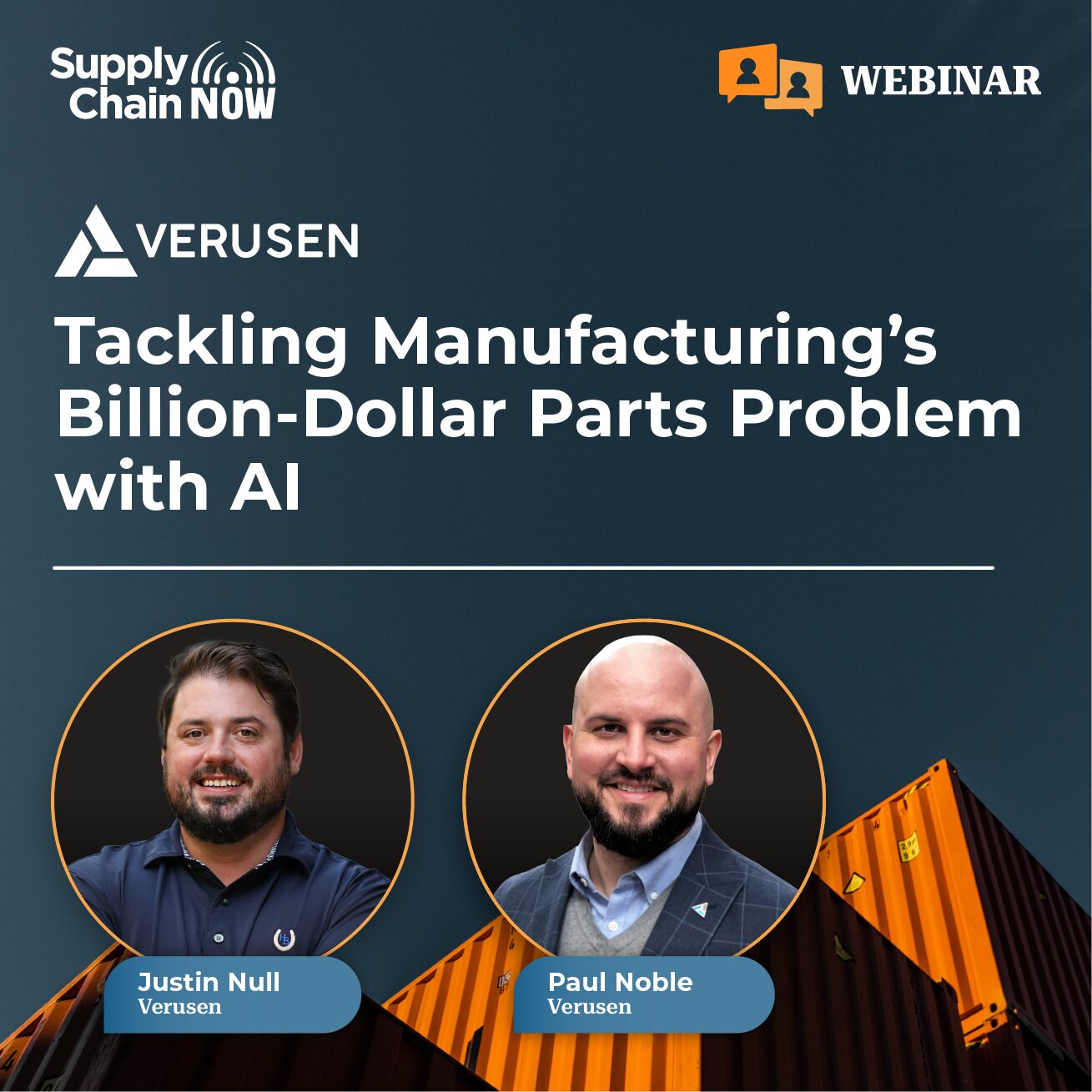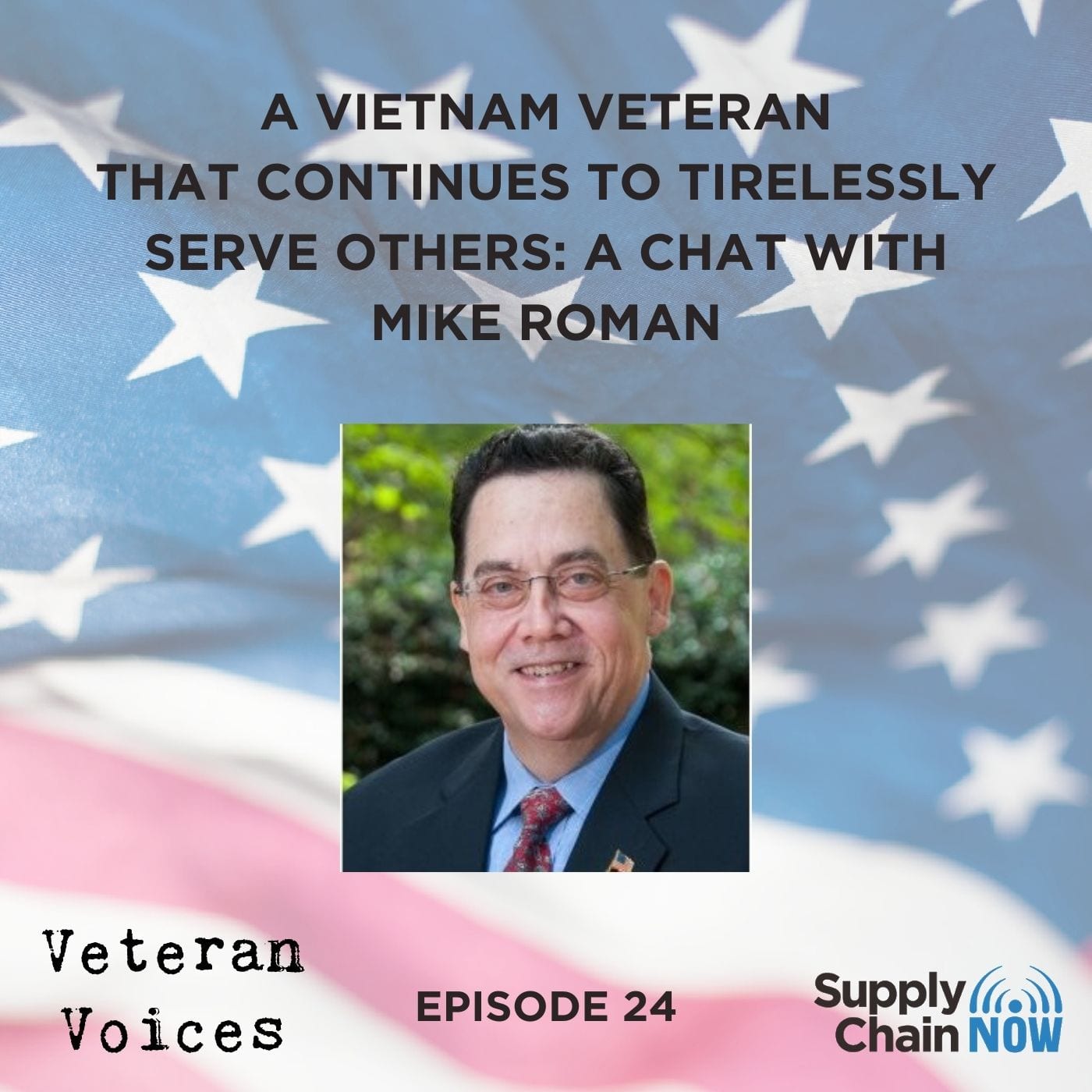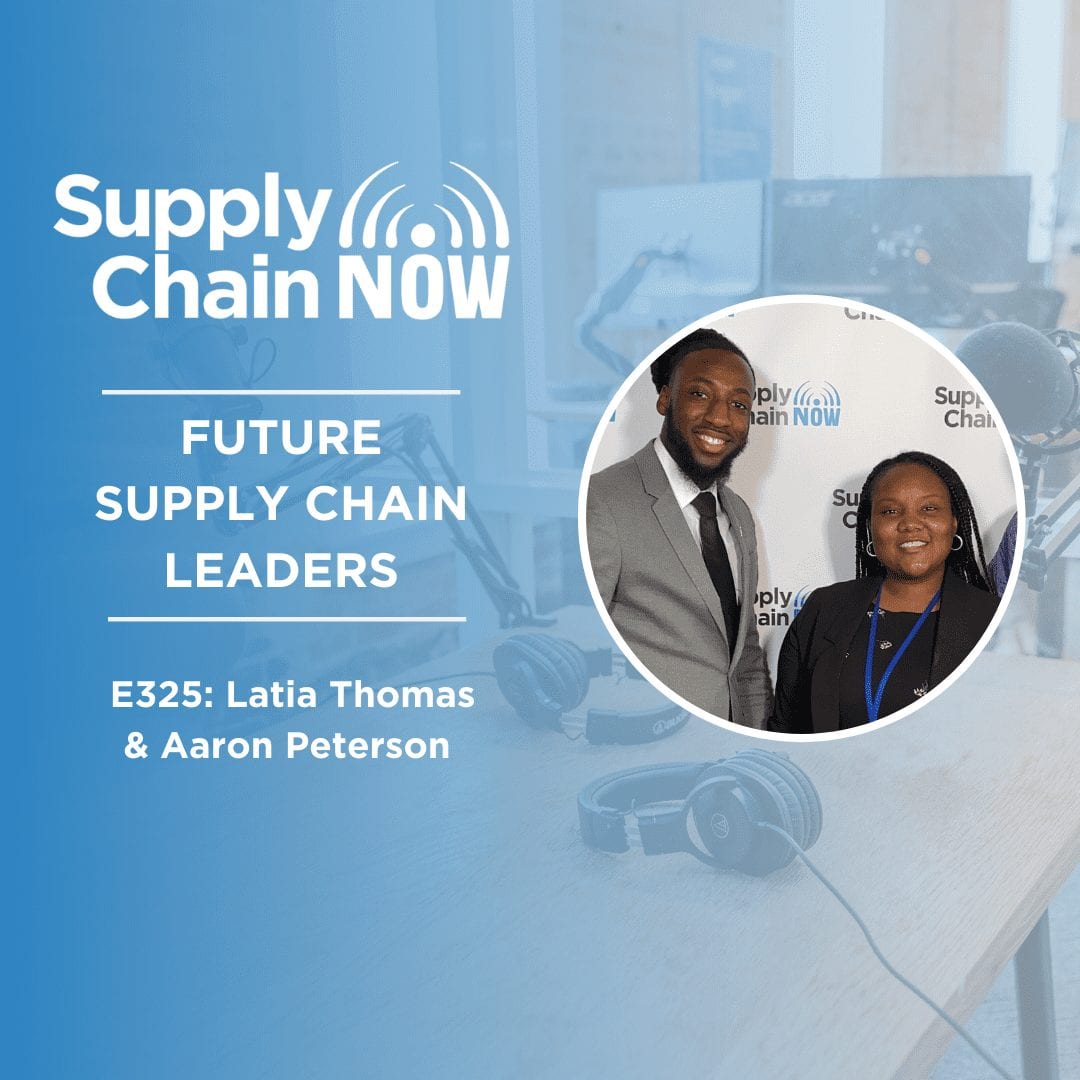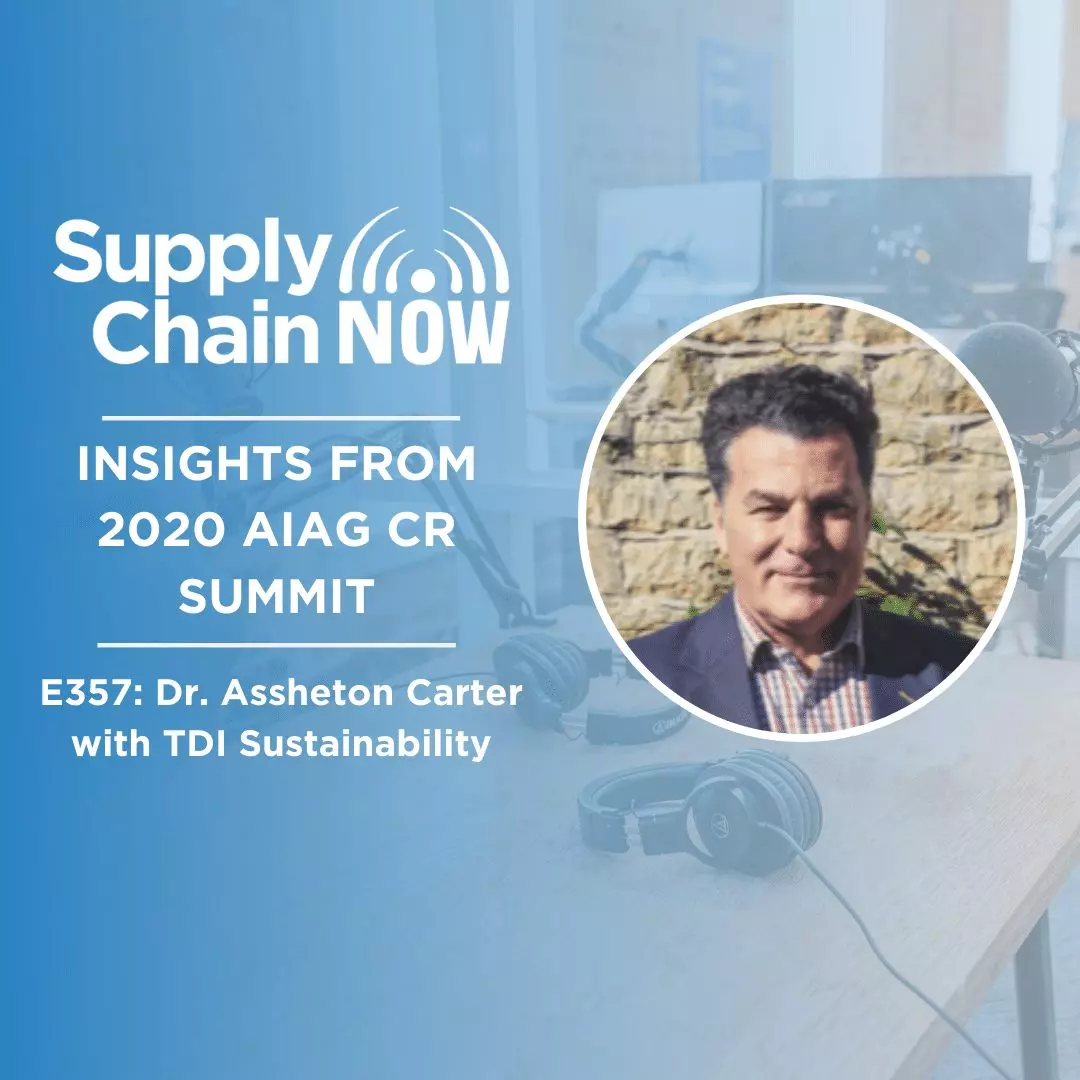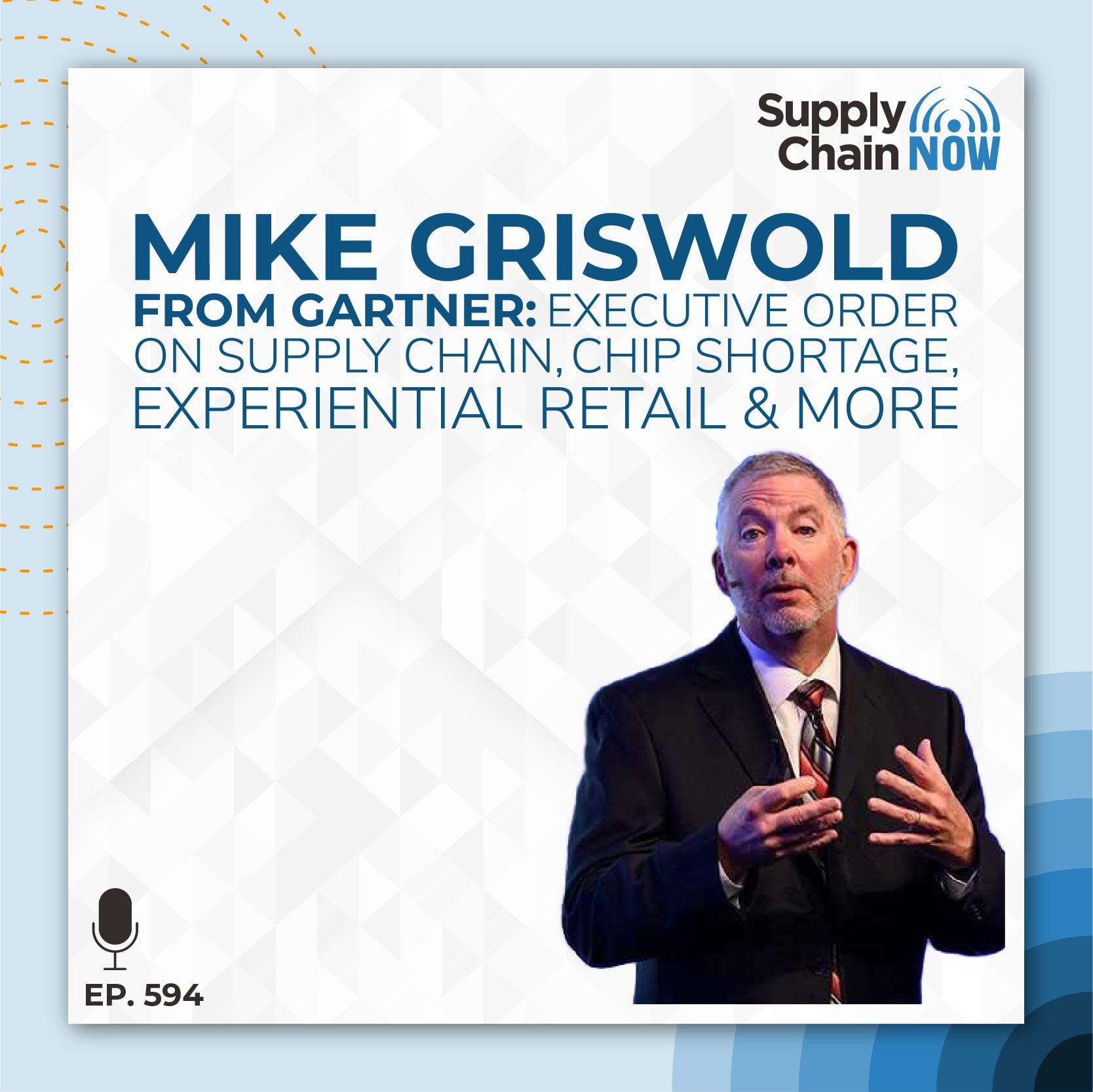[00:00:05] It’s time for Supply Chain Now Radio. Broadcasting live from the Supply chain capital of the country, Atlanta, Georgia. Supply Chain Now Radio spotlights the best in all things supply chain the people, the technology, the best practices and the critical issues of the day. And now here are your hosts.
[00:00:29] Hey, good afternoon. Scott Luton here with you. Labbe on Supply chain. Now welcome back to the show. On this episode, we’re going to be talking with two manufacturing leaders, learning more about their story and gaining their insights on this key industry that powers the global economy. So stay tuned as you’re not going to want to miss what our guest have to say here today. Quick programing note. Like all of our series on Supply Chain Now Radio, you’ll find our replays on a variety of channels Apple podcasts, SoundCloud, YouTube, really wherever UPS you get your podcast from. As always, we’d love to have you subscribe. So don’t miss a thing. So let’s think a few of our sponsors that allow us to bring best practices and innovative ideas to you, our audience. They range from the Effective syndicate Talentstream Vector Global Logistics U.S. Bank and many more. You can check out each of our sponsors on the show notes of this episode. So let’s welcome in my fearless co-host on today’s show, Chris Chris Barnes, executive producer and special contributor here at Supply chain now. Chris, how you doing?
[00:01:27] I’m doing fine. Thanks for having me on. Absolutely. We’ve had a busy week. Yeah, it’s been really busy. We’ve had a lot of a lot of shows. I mean, Atlanta and everybody starting off the year strong with the associations and networking and everything else.
[00:01:38] I think it’s fair to say it buys back from the holiday break really to go. So we spent an earlier day this week at a SC Competes Atlanta event where we sat down with three leaders from across really across the worlds of transportation and Logistics learned a ton, learn a lot about some of the major issues facing the transportation history in particular, which, of course, impacts everybody across. And in Supply chain. But I’m equally as excited about this conversation we’re going to have here with these two manufacturing leaders. So let’s introduce our featured guests here today. First up, Corey Shields, development project coordinator with PPR. Corey, how are you doing?
[00:02:16] I’m doing well. Thank you, Scott, for having us today. You bet.
[00:02:19] Great to have. You know, I’ve enjoyed our our pre-show conversations and of course, Jerry Feaster, who’s helped us kind of pull this together. And we’re big fans of what you are doing, Amy, which when touch on here in a second. Crystal York continues improvement manager at the Trojan Battery Company and repeat guest. Crystal, how are you doing?
[00:02:36] Doing well today. Excited to be here.
[00:02:38] We are too great to have you back home. Our listeners may remember Crystal from episode 83 where we sat down with her and a colleague. Really enjoyed the conversation. Great to have you back. And both, as we should point out, both Corey and Crystal, both also serve on the SE Froome board of directors for the Association for Manufacturing Excellence. So again, good afternoon. Okay. So, Chris, we’re we’re going to start, as we always do with these guests. We want to get a sense of who we’re talking to. More importantly, we want to give our audience a sense of who we are featuring here today on the podcast. So for starters and core to start with you, for starters, can tell us about yourself where you grew up. Would you love to do as as a kid and a young person and some early role models, maybe?
[00:03:26] Once again, I’m Corey Shilts. I grew up in Southern California, graduated from the High Cal State University of Bakersfield, Bakersfield. Okay. There’s two major industries in that area. Oil and gas and agriculture and bakers.
[00:03:41] And so yet Cal State FULLERTON, which is always in the World Series of college, baseball and then Cal State Bakersfield, where geographically where’s Bakersville? That in California.
[00:03:52] So there’s an area called the Central Valley. Central Valley runs completely north and south and California. It’s where all the agricultural industry is at. Yeah, it’s about an hour and a half north of Los Angeles and about four and a half hour, five hours south of San Francisco. Okay.
[00:04:10] Man, a tough life in those two cities. Well. So what do you go to school for?
[00:04:16] And that’s it. That’s the interesting thing. I have some fun. I actually have a degree in accounting.
[00:04:22] Wow. Yes. I didn’t stay there along. I I chose to do some other things with my life. My house, I married my husband. And about a year after we got married, he said, I want to go get a p._h._d. And we wound up at UJA. Oh, wow. Okay. coast-to-coast. Yes, absolutely. So he got the p_h_d_ or you or he got the P-H. Fantastic. And I had my first exposure to manufacturing and I walked out into the shop floor and my first thought was, oh, this is the most awesome thing to watch. Raw material came in and all this information come together and produce a product. That we all use in this case, we were building overhead distribution transformers. Mm hmm. And I was just wowed. And it was really neat because I later had a lady confirmed that for me. Sheer the she had a similar experience. Her name is Maria Elena, sofor, and she does three P work, which is just production development 3P. Mm hmm. Okay. And she she stood up at a national A.M.E. meeting and she said when I went on to the manufacturing floor the first time I felt like I was home, I thought that that was my experience. I mean, it was just so powerful to walk out and see all that machinery and all those people interacting and all that information and this product flowing down a line and coming out the end and getting on a truck and leaving slam.
[00:05:44] Ask you what before you saw it for the first time and put your eyes and ears and were in it. What was your preconceived notion of manufacturing?
[00:05:53] Probably dark. Dirty. Yeah. Mostly male.
[00:05:58] Yeah. And now that you’ve been in it for Lu while it is much different for you, right? Oh yeah. I think the other interesting thing giving your accounting background and how important and how supply chain finance has kind of risen in importance, but you’ve got a pretty unique view for manufacturing professionals.
[00:06:17] I do. I actually have a kind of a funny story. There’s a gentleman who really influenced my early career. His name was Dennis Strunk. He was the GM that actually promoted me to operations manager. And he took me out on the floor one day. He said, come on, meet me on the floor. I want to talk to you about the work you’re working on. And he said, well, what’s your thought about this? And I told him, I said, I think we can reduce inventory 50 percent or more than 50 percent if we could just get out of this rack. That was from the floor to the ceiling. We had very high ceilings. And he said, well, why haven’t you done it? And I said, because I cannot cost justify it, because I worked for it in a previous period of time, worked for a company that was you didn’t do anything you couldn’t cost justified. And I and I couldn’t. Every which way I tried to work the numbers, it wouldn’t work. And he told me he looked at me and he said, sometimes you do things because it’s the right thing to do. And I’ve pretty much lived the rest of my career on that.
[00:07:16] So I wanted more into your role in your organization before. Do I want to bring crystal-clear in? Because I want to get the same sense that the kind of personal background before we start talking industry and talking shop. So, Krista, tell us about yourself, where you’re from and your upbringing role.
[00:07:32] Awesome. So Crystal York, I am from a small country town, Thomaston, Georgia. All right. For over 100 years, Thomaston has been known for their manufacturing. Emile’s takes. Dow was the name of the game. I hit two grandparents, actually, to retire from the TechTown meal. Really? Yes. Well, and my dad actually is steel at the same cops, a manufacturing facility, Atlus roof and for the past 34 years. So manufacturing runs through my blood. Yeah, but believe it or not, growing up are always strong in math and science. I’d add juggle from being a pediatrician and to a gynecologist. Who? A lawyer. So I was kind of all over the place, but it was probably the summer going into my seventh grade year that my school counselor came to me and he said, Chris, what are your plans for this summer? And I was like, cheerleading camp. I was always a day year round. Sports, dance, tap, jazz, ballet, cheering. And I was like, probably just go to camp, chill around the house, you know, be with family, relax. So he said, I have an opportunity for you to do a stamp program. Keep in mind, this was over 20 years ago. I had no idea what you were two years old.
[00:08:53] I didn’t think I had them back then. I don’t know. I’ll take you.
[00:08:57] I had no idea what he was talking about, but he said, you’re so good at math and science and you’re gonna get paid a stipend. And I was like, wow, okay. Tell me more. He said, UPS how my parents and I. And he introduced me to a program called Setout Co-operative Developmental Energy Program. And the focus was to really alleviate the underrepresentation of females and minorities and stem base occupations. So every single summer from that seventh great summer up until my 12th grade year, I actually visited Georgia today. You inhale v. University of Oklahoma. And it was sponsored by oil companies like BP Shale. And we walked into a day in a life. So whether we were in a manufacturing facility or Re8 in the class room actually meeting and interacting with engineers, that before that time I had no idea what the whirl of engineering. Or really hands-down maybe factoring work because we don’t know, we don’t know. All right. Now it’s about bad exposure at the end of the day was about exposure. So upon graduating from high school, I accepted a scholarship from our school of engineering. Again, it was all about exposure and I graduated with an Industrial management degree. And within those four years at Mastery, really just having the opportunity, I probably dieser about three manufacturing internships remanufacturing. That was in Milledgeville, Georgia Millikin.
[00:10:35] And it really opened my eyes similar to. I walked on the floor and it’s very easy to spot what the problems are. But to new to now, I was in a situation to actually fix it and say influence others at a very young age. I end up accepting a job in a lighting light manufacturing facility. As assembly supervisor. So again, not they weren’t even own a lean journey at that point. And a very influential person. Does the current plant manager there, he said, you know, I see some I see so much in your ability to influence in a union environment. Fresh out of college. He said, I think you would be a good representative for a plant to get your green belt certification. And they were pretty much getting ready to start their lean jarrin. So I actually left the assembly. Assembly supervisor job. And probably about 10 weeks I traveled around to the different facilities at acuity brands lighting and focus on nothing but steady and continuous improvement. And Six Sigma benchmarking. Sounds like benchmarking and in learning how to lead and facilitate events. And it pretty much changed my life and all my roles. Have really consisted of either me leading a lean transformation or the project management that it takes to support Six Sigma projects.
[00:12:05] So there’s so much to dove into. But with what you both have shared and I’m making note to come back as we can talk about some industry stuff. But first, I want to make sure our listeners can understand your current role and your current organization. Right. So, Corey, back to you. With with PPA on your work there, what what what does the what stpi do? And then what? Where do you spend your time?
[00:12:26] Pbi currently has two manufacturing plants and a consulting company. The we have a manufacturing plant in Charlotte, North Carolina that does stamping is called stamp source, Queen City. Mm hmm. And we have a medical device manufacturing company in South Dakota, Partners. It’s called South Partners. And it’s in the little town of Clearlake in South Dakota. Very cold there right now.
[00:12:48] And do they? I was asking this. We were talking prior to going live here. Do they support each other? This is a stamping is like a precision stamping. They would use in the medical device.
[00:13:00] And the answer to that is, yes, we are in the process right now of taking all the metal parts that are in their product and moving them to stamp source.
[00:13:07] Okay. Outstanding. And we’ve seen it seems like the last. No, not that I could be wrong, whatever timeframe I’ll put it. But last 5, 10 years, we’ve seen more and more strategic moves with kind of coupling manufacturers in some cases, you know, three, four, five companies so that you create competitive advantage which are going through. Right. Very exciting. And so your role in particular, what would you do day in day and then everyday’s different. But what were some of the things, some of the activity you spend your time in?
[00:13:39] So I am like Crystal. I am very bent towards continuous improvement. And that’s really what my focus is. It probably doesn’t matter what the work is right now. I happened to be doing a lot of work in administrative front end things, improving those processes. Oh yeah. That the flow of information is no different than the flow product Greg White. It can have constraints. It can have error. It can have waste. It can.
[00:14:05] So don’t let the word administrator for anybody right. That there’s as much important information and process in those roles as well. That’s right.
[00:14:14] Next week I will be starting. Next month, I will be starting to travel to stamp source and doing some lean initiatives there as their leadership team determines what the next step is for them. And, you know, obviously the goal is to satisfy the customers.
[00:14:28] Love it. So just to give you I want to plant a seed, because after we when we find out more about Krystle’s role, I’d like to ask both of you, what’s one thing if you had to pick one, your opinion that most companies get wrong when it comes to continuous improvement, when we plan that seeks to come back to it before we move in the trends. But Crystal, tell us more about Trudgen Battery and your role.
[00:14:51] Awesome. So Trojan Battery, we were recently acquired by C and D Technologies. So counter to your earlier point coming together. With previously a competitor, but promoting more of a competitive advantage. And we are energy solutions. So initially we were all things battery. And now we’re moving towards really being energy solutions. So whether it’s solar power golf carts, we want to be your number one top quality provider. And so my dad with a passion there were the mature years. Been me. Yes. Day to day. Oh, my God. Hey, it varies. So I will say I’m really focusing from a continuous improvement. We’ve been on our journey now for about two years. So very new. We’re babes in the world, love Trident transformation at this point. But it has definitely been satisfying. So I would say primarily Aspen, the bulk of my time, really coaching and leaving gamble. walks, really trying to engage our leadership team to identify the barriers and then developing our team leaders and supervisors on demonstrating courage to say, here’s what I’m facing. So we can kind of eliminate many of the challenges that they have. Second to that, I do a ton of training. So my goal is to each year Lacazette they the second four year. And after such a 100 percent of the workforce. So whether to your point, Corie, operations or administrative roles developing the mindset is going to be key. All right. And then third hour definitely say the strategy deployment piece. So it allows me the opportunity to work with our senior leadership team and executive team all. Where are we? How can we say cost out? How can we decrease risk and really drive profitable sales growth?
[00:16:57] Leavitt Now, you mentioned Gimbel walk in. And let’s let’s define that term for some of our listeners that may not know what that is. So again, big means going to the value I believe in Japanese if my memory serves me well in 30 seconds or less. What’s again, the walk in your work?
[00:17:12] So a gamble walk is where you’re going to where the work is down to two critical things. Number one, you’re going to take your supporting cars. So whether it’s your safety, quality, operations, maintenance, engineering, support, you’re they’re suiting and booting up and they’re going out to the floor where we’re making the mining. That’s that’s that’s one key thing. Secondly, you’re going to actually assess your MTM entry. So that’s managing for daily improvement. So these are things that we look at at a floor level to say, are we winning or losing? And to my earlier point, is the support team coming out to say, hey, did you win or lose? And the things that you’re losing all or battling, how can we help assist you? That’s the essence of a gamble, OK?
[00:18:00] Love it. Love it. Okay, so now we’re going to move more broadly here. We’re gonna talk about the manufacturing industry as a whole. And in some of the trends that that, you know, might be keeping you up at night or something you might be fat infatuated with or what have you before we do, what’s one thing. Couric, back to you. Was one thing that you think most companies or a lot of individuals may get wrong about true successful continuous improvement.
[00:18:28] I think what they get wrong is that there’s a thought that they don’t have time. They’re so busy trying to meet the demand of the customer or the demands of the day or whatever. They don’t have time. And I would tell you, it’s the opposite of that. If you don’t make time for Kronish per minute, there won’t be work to do in the future. Our competition is the world. It’s not it’s not the transfer or the battery plant down the road. It’s it’s China. Right. And our improvements aren’t going to come in. What people are paid to do work. They’re going to come in process improvements and lead time improvements across the full supply chain. I don’t just mean the internal what’s inside the factory, but across the full supply chain.
[00:19:10] Yeah, we’ll put, you know, this notion of disruption. There’s there’s a good side of that. There’s a bad side of that. The great side of that is, you know, there’s so many things opportunity within our reach as humans or as folks that live here or there of this industry, that industry opportunity for people. But the Barça, to your point, is that the industry is constantly being disrupted and it’s not necessarily a direct competition. It’s all that the whole market. Right. Right, right. And how things are evolving. Crystal was was one thing. Do you think when it comes to these improvement?
[00:19:44] I would definitely say that there’s a misconception of people thinking if I’m deploying a continuous improvement program, I’m immediately gonna have great call savings. And it’s all about saving money or cutting people versus. Understanding the cultural foundation that’s required to have a true successful continuous improvement program is is is definitely top down by and to say I am open to the way I have always done things to go away and drive to route calls and really be open and honest for change. We forget that part.
[00:20:24] Yes. And as humans, we don’t like change. I like eat the same bowl of Wheaties every morning that I 6:55.
[00:20:31] We don’t like change. That’s called stand at work. But I still feel I can expand on that a bit.
[00:20:37] Your theory? Yeah. I’ve done Lehne for 25 years and probably the past two and a half, three years I’ve truly become to realize. I think it’s more about the people. Yeah. You know, historically it’s always been cost reductions. You know, I don’t want to use the word layoffs, but that type of thing. But, you know, maybe I don’t know what comes with age or experience or what, but I think it’s a holistic view of how can you improve work for the people.
[00:21:05] I couldn’t agree more. I would definitely say I’ve been doing Lahn for over 15 years at this point, but probably about five years ago, believe it or not, a late bloomer. It clicked that people are the most valuable asset and win because for those what t’ain’t first 10 or so years. I wish Tyson dollars to believe it or not and in attaining it. But what I was leaving out was the people. The important though, pretty much the foundation it and sustain. Who’s gonna ensure sustainability? But once it clicked, I was able to deliver trainings, develop relationships, and have much more gain. Mm hmm.
[00:21:48] Well put. So let’s go broader. We all love. Clearly, we’re kindred spirits around continuous improvement at this at this table in the studio here. But let’s let’s talk about the industry as a whole. And let’s also make sure it’s with global manufacturing as a as a backdrop. What, Corey, when you think of some of the trends or the issues or subject matter out there is taking place in the manufacturing industry, what what’s captivating to you?
[00:22:16] I think it’s the merging of solutions to problems. The. So there is a problem today in manufacturing. Are the people that are coming to work for us didn’t grow up on farms. They don’t know this tool from that tool. And they’re hitting us. And what do we do about that? But on the technology side, there’s some really cool things happening in the in the marketplace. And I’d just tell a quick story. I worked for a company called Power Partners, which did overhead distribution transformers. And we had a problem. We had a 15 percent error rate coming off the end of our line where we did late stage customization for the support for our customers. And we decided we’ve got to do we’ve got to do something to fix this. This can’t continue or nazem our customer is going to go somewhere else. What we wound up doing was approaching somebody who was just getting into the industry of doing pick like systems. And we pulled hundreds of parts out of these five stalls at the end of the line. And we’ve created a pick light area in front of it. Pick it up. Pick light. Mm hmm. Basically a computer who has access to the information of what goes on that computer would light, but show the lights in the quantity that was required.
[00:23:33] Somebody would walk the circuit picking out the pieces that were needed and send it to the end of the line. The person that the customer I’m sorry, the supplier that we were gonna purchase the equipment from, they were scared to death to do business with us because they looked at us and they said, you know, all of our stuff is in a clean environment. And this is not very clean because transformers are oil and a lot of welding. So there’s well, dust and things like that. And we said, that’s okay, we’re gonna take a gamble. We’re gonna figure this out. And so we did and, you know, cut the error rate way down. But the biggest thing that we got that was so amazing was just take about four weeks to train a person to run the initial install and for weeks, four weeks. And when we put that pick light system and we could train somebody in about a week. Yeah. I mean, it’s the you go after one problem. It’s the multiplication of benefit that you get. That’s so impressive. Marlene.
[00:24:29] Yeah, agreed. Especially when you get that mindset right. The both of you spoken to. Right? It’s not. I think oftentimes in my experience, the workforce can be kind of fearful of what is going on in the leadership, you know, because they’re not part of that planning. And there’s that old phrase that if you plan it with them, you can do it with them. I’m butchering it rather than if you plan it with Adam, something you’re doing to them. Right? Right. But both of you are speaking to that culture and that mindset that. But by and where it’s not just. Dollars about opportunities for for the company, for the workforce. OK, so switching gears back over you, Crystal. What in the world of manufacturing, what’s intriguing to you?
[00:25:12] I would definitely say I’m kind of going back to maybe in a part of that seat out program. Yes. Over 20 years. One thing better that is still current and relevant is the fact that there is just a lack of females, a minority in the manufacturing ram. I do my best of really volunteer my time to share with individuals with similar backgrounds is mine, my female minorities to say, hey, don’t be afraid to step into SDM standbys, education. And I know it may appear daunting or challenging or to my earlier point, that lack of exposure make make makes you less compelled to go into a stam to try to attain a SAM degree. But when I walk into the room, I’m most likely the only person that looked like myself. Right. So is that lack of diversity that we still face?
[00:26:08] So if I can go a little bit deeper, how does that was that such a problem? You go into a room and you’re only person, then there’s not a lot of folks look like you. Was it such a problem?
[00:26:19] I would definitely say is the lack of diversity of thought for sure. Diversity of thought is important.
[00:26:26] Agreed. You know, we we’ve been running a because we’re on a journey. Right. We’re on a learning journey to to help. Well, for us to better understand exactly what you just described there, but also act and and give others visibility of an awareness of the challenges, we kicked off this full access series. And we it is selfishly, we’ve learned a ton. BOP, bop. Sitting down with more leaders that happen to be women. Right. And better understanding a lot of what you just share there, because it is, as we all know, sit around this table. It is if you have a lack of diverse thinking, innovation stymied. The bottom line is impacted.
[00:27:07] You know, you break through the monolithic thinking that can take place. So that is a big challenge. Corey, anything that you would like to add to kind of, you know, attracting a wide diversity of thought into the manufacturing space, how we can do that or or maybe in anything. What that means to you.
[00:27:27] I think what it means to me is that when we sit down to work on something, a problem, improvement, whatever it is, we need to ask ourselves who should be in that room and we need to make sure that it’s. To your point that it is diverse. And when I think of diversity, I think even across levels of organization.
[00:27:52] And I think when you when you do that, you get a I guess, a more solid answer, something that you actually can implement and and actually has sustainability. I was very fortunate. I didn’t have to break down a lot of walls. In manufacturing that many women in the generation before me did that kind of work. I will tell you that in the company I worked in when I went there, there were no women in leadership. When I left there, there were probably half the people have half the leaders were women.
[00:28:25] That that is an outstanding story. And hopefully we have a spillover effect because in the industry, as we’ve you know, we’ve had some if elbow Patel Gallagher, which show me 50, which is a great nonprofit, all about ensuring there’s opportunities for all in the industry. Right. Show me 50 that org. Well, as we’ve learned, you know, if you look at the population in the workforce coming out of school, it’s very close to 50/50 in terms of male, female. However, as you move up the leadership ranks. And then of course, at sea level, it’s less than 5 percent in terms of representation. That’s we all know this challenge. But also, speaking of accounting and financials, study after study, you know, McKinsey is one is one most popular ones that produce studies around if you’ve got diversity in the boardroom. It’s got bottom line implications. So before we talk about Amy and then the great event coming up and we define what that means for vote, what what Amy is for folks and the value of being involved in anything else in the world of manufacturing. That’s really that that makes this industry such a exciting time to be in manufacturing space right now. Battery industry is changing and evolving dramatically. You spoke to some of the changes. We talk a lot about the electric car and and what that means for the battery industry. That’s gonna be exciting. I know they are more involved in the golf cart side, but you know, on your side, Corie, medical devices and how that’s improving lifespans and that is helping us tackle health issues and and preventing challenges that may have been life, life or death. Just a few years back is changing outcomes these days. Right.
[00:30:08] And there’s there’s so much information out there today, you know, and, you know, they tell you you have to be responsible for your own medicine, if you will, for your own medical care. I think that’s really real, real. And I know in the space that South Dakota Partners is in. We don’t just make for doctors to prescribe. There are companies out there that are trying to meet you and I. And say, hey, you need this device. It’ll help you, you know, after you exercise for your muscles to, you know, relax, you know, whatever, whatever the deal is. So there’s you know, there’s huge opportunity, I think, out there. The doctors are probably disconcerted. I mean, I think it’s you know, people are coming in today going.
[00:30:51] I think this is what I have instead of. Doctor, what do I have? Well, M.D., by the way, I’ve already started doing X, Y, Z. Self-diagnose.
[00:31:01] Well, we’re all coming home. Page these. Right. Well, so much we could talk about manufacturing. Let’s talk about Amy and Chris. I know as a fellow industry association volunteer volunteer leader, I know you got some some interesting questions about Amy.
[00:31:15] Yeah, well well, for starters, I mean, Amy doesn’t have I and I you know, you’ve got to have an eye. Why aren’t you guys. I Amy. But no. What is Amy? What what’s the association?
[00:31:27] So it’s the association for manufacturing for manufacturing excellence.
[00:31:32] It’s easy for you to say. Why? I didn’t go first. Yes.
[00:31:37] It’s a group of people that want to share best practices, practitioner to practitioner. They want to develop a arena, an area, a space where people can come together, share what they’ve done, maybe help another person who’s got a problem in their facility. It’s basically speed to improvement, if you will. That’s what attracted me to Amy originally, was I could go and sit down. And, you know, I worked in overhead distribution transformers and I talked to a person in medical who helped me understand how to start tracking information because who tracks information in the production of medicine better than a pharmaceutical company. Right. So I just think that there it just creates that moment where two people can come together and and. Mm hmm. Yeah.
[00:32:29] So is it. Is it a membership organization, so. So me, I could join as an individual. Yes. And then do they solicit corporations as well?
[00:32:37] Yes. So there are. As an example for the Southeast region summit meeting that leaders summit meeting that some might be May 4:37. We will seek sponsors. Mm hmm. And, you know, there obviously there’s an exchange of value that occurs there. And then the people that attend will become members and that membership is good for a year and allows them some benefits going forward in the future.
[00:33:06] You have a. You mentioned the southeast region or the region, the south. Is that you have more local chapters like Atlanta has a chapter making as a chapter. Nashville has a chapter or those just more regional based. How does that work? The organization?
[00:33:22] So we don’t have chapters, but we do we do have regions. There has been a new a new movement, probably about a year old or maybe two now within A.M.E. to partner with the m.p.’s.
[00:33:38] Mep MEP. Yes, in the local areas like the Georgia Tech. Some. Right.
[00:33:45] And just lecturing you. Yeah. And just to for our audience. It may not be familiar with MEP, the MIT ESA Manufacturing Extinct Extension Partnership. I believe that last word. And it’s basically the for the federal government has identified one resource in each state that works with a lot of small, medium size manufacturers and it gets federal funding to help make manufacturing bloom. Right. Each state here in Atlanta, it is as Chris pointed out, the Georgia Tech is the host of the MEP and sounds like Amy’s work in a lot more with m.p.’s and in the very state. That sound so smart to me.
[00:34:18] Yeah. It’s all about economic development, you know. Right. Creating better communities as well. All about the economics. But now that’s sometimes what makes a better community is the economics. But yeah, that’s a that’s strong. There’s even federal funds for some of the m.p.’s work with the federal funds for training, you know, getting reskilling workforce, those types of things. So that’s something we work with them on. So what would somebody you have events in Atlanta specifically. So if myself forgot board someday it could come out and check out what you guys are doing.
[00:34:48] Absolutely. So that’s actually more diverse. We have in the southeast region, we chose probably five years ago to have a big meeting. And it’s been in Atlanta for the last. I think four or five years and it’s called the lean summit. But alongside all of that, there are practitioners who open their plants and will do events, training events. So maybe you want to do seven s or maybe you want to do seven S now.
[00:35:17] Oh, yes, sir. Seven. That’s seven. Their safety was the sixth. What is the sustainability?
[00:35:24] Security. Secure? Health. Security.
[00:35:27] Ok. That is a learn something new every hour or so. But so continue point there as folks seems like as part of this of this Lean’s summit that not only is it the networking and Chris won’t get your way in here in a second, but always in networking and and bringing people together that have some challenges in helping that exchange of information.
[00:35:47] But it’s training. Yes. Right. Yeah. And the training takes the form of a visual kind of training. So we do plant tours. Those are usually considered to be the most valuable by the people that come. And that doesn’t matter whether you’re at a summit, which is a smaller group of people or at the national meeting, which is a much larger group. Yes.
[00:36:09] So the summit that’s coming up May or May 4th or 7 4 3 7, and we’ll make sure we have a link for that on the show notes, folks, and check it out. Want to bring you in here. And why participate? What what do you think beyond what Korea Sheer, what else is in the cards for the value proposition when it comes to busy professionals? Dedicated some time in a group like Amy.
[00:36:37] So keep in mind I am fairly new to A.M.E. parabolas introduced to A.M.E. in 2018. OK. So again, not even quite two years. I attended AAVE, the international conference in San Diego, and the value that I received that pretty much captivated me to lay me in the seat today. I would definitely say is lame practitioner to lean practitioner sharing, which is a casual comment to say but is truly sharing. So I can come to Alene practitioner and say, hey, we’re trying to launch a success program. What worked and what didn’t work. And they will give me their honest feedback. Hey, shoot me over there, stand at work real time. So it was a great opportunity for me to be around like minded professionals and continue to develop and grow with Lane. We had talked earlier. It takes a certain perseverance to go and to transform a culture. So to step away and to join an organization like A.M.A. is speaking what worked, what didn’t work, which is so valuable because lessons learned inside is just always 20/20. And then is going to see with Nagas. So at our last international conference, we heard we had a project manager from Toyota to say, what’s the next evolution of the Toyota production system? What’s around the corner? Around the corner. So is is is that development is the leadership is being around like minded individuals. And what I like most is both the workshops and the tours, they kind of identify individuals or organizations that are early in their transformation intermediate and the experts. So no matter where you are on your journey or your journey or learning or your organization, journey is something for everyone.
[00:38:30] And it’s open. It’s open to the public to come up to the event. Right. And, you know, we were we were talking forwent live here. What an incredible plant tour lineup. But they give us some names that are going to be and this is that, again, May 4th to the 7th here in Atlanta or the metro Atlanta area, who are some companies are going to be touring.
[00:38:50] I know I’ll be serving as tour captain for power partners and I think are definitely OK.
[00:38:57] And Passport Partners is out in the Athens area, I believe. Right. Are Donnelley. They’ve got a couple plants, I think, in in the Atlanta area corre about you.
[00:39:06] So we also have Caterpillar Fiber Vision, Harare’s Corp. There’s a few others train NCF industries. So all of these are on the A.M.E. Web site. If you go to W W W Dot A.M.E. dot org and you select for events, you’ll find the Atlanta summit there and you can do your own research and there’ll be write ups about each of these so that you can kind of pick maybe somebody who who you’re interested in who might have a solution to your problem. Absolutely.
[00:39:38] A diversity of types of sites and industries that these manufacturing sites represent, again, will make easy the link to this specific event, which we’re gonna be broadcasting live day one. That’s kind of the networking Get to know you session. We may or may not have a speaker right over our shoulder. Member That last request of the lutely, we had a blast. Emily Darwich, which are speaking to is exactly what we saw take place, you know, beyond the Trudgen Better Company. We also sat down with McKee Foods, who is the infamous benefactor, infamous in a good way of the little Debbie Lonna Foods. Right. Or to we who didn’t grow up, eat Little Debbie’s own little idea. 8 Teamone. Um, but just a great lot of kindred spirits. But, you know, if I can’t challenge it because of what we found is while there was a camaraderie, any a kindred, certainly kindred spirits in the room, there was also a lot of diversity of thinking. We had some interesting conversations between the shows where we kind of debated a little bit about what was taking place in industry and in a good way that we all benefit from. So y’all both you beat tour captain. Are you leading or Keena? Keynoting or training anything?
[00:40:49] I will be a workshop facilitator as well. Okay. So that Hands-On training that Corey spoke to, really helping out with who’s ever hosting to make sure it’s a fabulous event.
[00:41:00] Love it. And Corey, what will be your role during the four days of of good stuff?
[00:41:07] I. Definitely will be there. My role actually is active right now. I’m taking the marketing on the marketing lead on developing this. So that’s why we’re here today.
[00:41:18] Get the word out, right? Oh, great. Yeah.
[00:41:20] Yeah, that’s that that’s the channel, especially in this day and age when we’re getting bombarded with so much information. The great events like this can kind of get lost in the shuffle simply because we’re all getting emails and social media kids in the room, you know, in your years and stuff. But this is a we had a great time last year and this tour lineup, you know, plant tours is maybe this is something you can speak to. I think one of the hallmarks, I believe, of the A.M.E. organization, just like Jimmy here in Georgia, is all the plant to opportunities. Why is that so important? Who, Crystal, speak to that little bit?
[00:41:52] I would definitely say the plant tours give individuals, no matter what their level or understanding of lead may be, it helps define best practices and what right looks like. So it’s very easy for me to go to a training read about something in a textbook. But for me to see it hands out on Eva and to put the icing on the cake to speak with the individual who own the process is so valuable, so value. So many best practices or benchmark opportunities that I’ve taken away from both the Atlanta summit and the international conferences for the two wars that I’d been on is priceless. Mm hmm.
[00:42:31] And Coral Jad. I mean, I loved how you started your kind of foray into manufacturing when you experienced that. You got it like a eureka moment. That’s important to plant toward, right?
[00:42:44] Right. And I think from a leadership standpoint, what plant tours do is it allows the people that actually go and do this work and have these fabulous improvements to actually have a moment to celebrate. And my experiences that that’s hard to make happen consistently. So if you can if you know, if you can be a plant that offers your plant as a tour site, you can create those moments for your people where they can stand up and really say, hey, look, this is what we did and this really works.
[00:43:17] Okay. So again, A.M.E. dot org is the URL for the organization. And then also on that site, you can find a link to the Vetlanta Leaned 10/20 Lean Summit and of course, Levine show notes. So looking forward to that. I want to circle back to something as we kind of start to close here and, you know, talent, you know, before Witla, you know, Chris, what you’re talking about, you’re going to be at a local school at a time when he’s the wrong word. No career fair. So not a career fair. It is like an year old, a future fest.
[00:43:51] County schools. And it’s a future fest where they they basically get organizations to come in and explain to the ship in high school, middle school students, several schools from Cobb County, bring them in and just kind of expose them to career opportunities. And so that’s what I want.
[00:44:08] I want each of you all to weigh in on this. And we spent a bunch of time in recent years with mainly third, fourth and fifth graders. They’ve run something called Supply chain one to one, just really sharing inside of an hour some basic concepts. You know, awareness and the inner exchanges we’ve had has been remarkable. We’ve learned as much as the kids. But as part of that, clearly going back to the awareness and we don’t know. We don’t know. We’ve also you know, it’s amazing. We had one teacher put it that parents are your are their kids first consultant. So whatever the parents thinks, what the kids are gonna think. And unfortunately, as a lot of studies have also pointed out, parents have some. Some parents have some preconceived notions about remanufacturing and they can steer their kids toward different tracks. Even though to what you’re talking to, Cory, their manufacturing is not like it’s the 20s. So how do we for each of ya? How do we better create more awareness for what manufacturing is today and the exciting opportunities that exist for anyone? How do we do that better? And first, who’s the first taker here? Caught.
[00:45:20] I think necessity is going to drive it. I was at Georgia Manufacturing Symposium meeting and I heard a gentleman stand up. He worked for a German company in north Atlanta. And once again, they had this driving need. People were coming out of high school, but unable to work in their shop safely with, you know, with good productivity and that sort of thing and quality. And so they decided we’ve got to do something about this. So they went to a tech school and a local high school and they worked out an agreement between the three of them. So they all three partner together.
[00:45:56] That these students who selected into this program could take classes at the tech school and come out of high school with an A-s. And then their obligation then was to work for this company. I want to say it was right two years. But don’t hold me to that. I don’t remember the exact timeframe, but they created a partnership. So what was driving a need inside a business organization wound up having a community impact by bringing together the right people into the room who could solution that problem. Love it. And I just think that that’s the future.
[00:46:31] Yeah, great point. In fact, the the last Gartner top 25 Supply chain rankings, one of the key findings was how creative that the private public sides of communities are working together to solve challenges where everyone wins. There seems to be less resistance in terms of some their findings from that. Crystal, what would we all do and how can we help you reach more and more of our young people to correct. Maybe any stigmas they have associate with manufacturing?
[00:47:00] I would definitely say my first solution I would propose is using the social platforms. I mean, as to where they are. Right. Got to go where where your audience is. But but really but really leverage it those Helzer platforms to let them know how cool manufacturing is when I speak to young minds. I really reinforce the importance of how many jobs manufacturing create and the to support that. What really intrigued them is all the cool technology that takes place. Right.
[00:47:33] So for me, generationally, my family was able provide for their families by leveraging manufacturing, but to a younger mind, letting them know that the statement that they may have because of lack of exposure are really not true. Kind of like breaking those myths. Secondly, I would say, is many of the degrees tailoring get more to what we’re facing, the challenges that we’re facing. So they’re graduating with degrees that can support our modern day manufacturing facilities, whether it’s the NBA focus or an undergrad at Belkacem. If you introduce it to them early and the and similar to how Mercer was able to provide me a plethora of internships, they can be in transition out of college and be ready to take on leadership roles in manufacturing.
[00:48:22] Excellent. We need to bottle what they both. Yeah, actually we are bottling what they’re saying that we share with the world, right? With the world. But you know, the good here’s here’s the good news. There’s always good news. And we always need good news is we’ve sit. We’ve sat down here and elsewhere. And criminally, you’re in and out of a lot of schools at many of the thought leaders with an education. Ranks are getting exactly what you shared in their start. And some of them are starting to make the changes to make it more for the programs that weren’t connected to what’s needed. We’re seeing those changes and you know, it’s never too late. But there’s so much opportunity to better make sure folks have that awareness of all the wonderful careers that can be had in manufacturing. And Chris. You talk to students all the time, both kind of traditional students, nontraditional students, older, younger. What what do you see in terms of what works to spread the awareness?
[00:49:16] Well, I think the one the one thing we could do to make a difference is make the goal required reading in every high school. And I think that would that would make a big difference if you know what the goal is. If you don’t go check it out and read it. It’s a quick read. So that’s how I got that heart in Lane. That’s a lot. Me, too. I think that’s it. It’s it’s it’s old school, but I think it still resonates with today. So, yeah, that would be my one. My one trick pony.
[00:49:40] Hoffa. All right. Well, you know, I hate to want things down. I really enjoy the camaraderie. Have you? I think there’s lots of things we could talk about. Continuous improvement. I mean it. There is no shortage, but by definition of things that they that it touches. So I’d love to have you all back, especially May. Who knows? Maybe after after the Amy Lean’s summit here in Atlanta takes place, they will have your back and talk key takeaways from that gathering of several hundred manufacturing leaders. All right. So how can folks. We’ve mentioned where they can find out more about Amy in the in in the event coming up in May. If something that you offset, which I bet it’ll stick in someone’s crawl. How can a fall out with each of you? Corey and Crystal.
[00:50:27] Crystal, start you off for me? Definitely. Check out my link. I’m always active in this crystal with an 8 C H R Y S.E.A.L. In York, like New York.
[00:50:39] Birgit. That will include link that make it easy as well. Corey, now that you’re in the marketing leadership role for the southeast region and balancing, you know, and change at PPA, how can folks reach out and learn more about something you shared or you know about what you’re doing?
[00:50:55] Amy Sure. I don’t have a LinkedIn presence.
[00:51:01] I’m older than Crystal Ryder manufacturing a longtime. But you could reach me at PBI Wacom. Perfect. And that’s my e-mail and my oh, I probably need to give you the rest of it. O’Clery Shields, LRIP s.H.I.E.L.D. The secrets to Gerrish. Then everybody would get it. That’s right. That’s right. So it’s cute. Yes. If you had questions, you could contact me and I’d be happy to to share with you what I know. And they come to the meeting. They can meet you at the meeting. Come to Amy meeting. Yes. And we’ll be more than happy to share with you life experiences and what works. What doesn’t work. Mm hmm. Maybe. You know, new possibilities.
[00:51:42] Absolutely. We admire both of ya. Because in the many, you know, the manufacture in Sheer, when you’re in a role leadership role in manufacturing Sherkin, you’d never have enough time the day. Right. You’re constantly with it. You have a world class company. You still are putting out fires, making sure your teams put taking care of doing all things you do for both your car about time to give back to the industry so that hopefully are the ones that are turning that light bulb off. You know, with some of our, ah, you know, members of the youngest generation, appreciate that, admire that service. And we look forward to seeing the Amy Atlanta Lean’s summit, if I’ve got that right. I think being there and meet more people just like both of you. So, Chris, what a great conversation.
[00:52:28] Yes, I’m excited. I’m going to go out, get the book again, take that. Take it off the shelf. And the goal. Read the goal. There is another buzz. OK. Pleasure.
[00:52:38] Call learning to see. Have you read that? Learning to see. It’s older. It was written by Mike Roeser and Lu. Who is the other man? Malcolm. Where’s Mark? John? Need to shake. John shook. Yes. OK. That was that really when I first started, I sort of trained myself by using that book. And today, I can’t hardly describe something to somebody without drawing a diagram. So but it’s it is a very neat book and necessary when you’re going to make massive changes inside of it, inside of an organization. So you can actually give them a picture and they can go, oh, that’s how that that’s what she’s talking about.
[00:53:20] Love it. Love it. Malcolm has shot me in the learning to see value stream mapping to add value and eliminate Muda. John Shook and Mike Rowe there. Right. Outstanding. And we’ll add that link to that. And the goal and help others learn to see. Right. This has been great. I hate that in the conversation, but we look forward to having you back. And let’s look forward to reconnecting had the event just a few months away. Well, Chris, but before we wrap up, let’s talk about some of the things that are on our radar that we’re we’re going to be beyond the amy. event in May. And really, that’s all I have after this week. We knocked out the C A Simpy C SCMP Atlanta event at a great time with our our friend Dave Maddox, who heads up the local group. And Gail Rakowski was the keynote. And Gail is executive director of Narced Track, which is a very well regarded shipping organization helping companies become strategic shippers. Gale covered about eight different trends that are really impacting the the the transportation industry. And we sat down with her afterwards as well. Really enjoyed that. But coming up, we are also going to be in Las Vegas for the reverse Logistics Association event. Getting stuff back in, I guess. Yes. And you know, and we should touch on that. I don’t know how how involved ya on the reverse side of Logistics and returns and processing the returns that’s become in this e-commerce age, it’s become such an incredibly important and relevant issue that that drives so much of sustainability. And what do we do with the returns? And unfortunately, so much because companies are struggling, what do so much of it goes into the landfill? So the reversal just association to doing great work, kind of spreading best practices of how to not just handle returns and reduce returns, but also how to efficiently and effectively drive reverse Logistics February 4th through the 6th.
[00:55:20] And not only can you learn more at RLA org but we’ve got the event link on our web site as well. And the mode ex if you’ll ever heard of or been to mutex Christian core. Well, you’re in. Hey, good news. We’re here to tell you about it. X is North America’s largest supply chain event trade show. About 35000 people are expected to come to Atlanta every other year comes here. So its sister Organ’s its sister event is pro-Mitt, which is held in Chicago. But coming up, March 9th to the 12th. So before the Amy Lehne summits, I might be a great opportunity to get out and share the love about Amy and the lean summit that mutex. But March 9th through 12th is free to attend, which is another great benefit. Mo show dot mdx up com to learn more and to register. We’re gonna be there. We’re gonna be streaming live throughout all four days, which we’re really excited about. We are also facilitating, Chris, what’s what’s taking place on Tuesday, March 10th? We think awards, awards, awards. So we’re rella nations are open, right? Get it out year to 2020. Lana Supply chain awards last year was a first year partnered with Chris and Apex, Atlanta CSICOP Atlanta Roundtable and the Metro Atlanta Chamber to celebrate the world of Indian Supply chain here in metro Atlanta, including manufacturing excellence. You know, we have award ranging from manufacturing excellence to sourcing to warehousing and fulfillment and supply chain entrepreneurial award for that.
[00:57:00] While those firms are launching into the industry technology, young young professionals, you name it, bright futures pioneers. Yes.
[00:57:08] Yes. Yeah. So last year was the first. It went well. We sold out a few weeks before the event took place. And this year, we’re going a little bit bigger. Were hosted by mutex. We’re gonna be welcoming not 34000 of our was going to neighbors. We’re not gonna sell out that big space like 50000 seats. We are limited. The third. Three hundred. Three hundred. Well, we might sell out. We absolutely will. Okay, we’re close. But March 10th. Tuesday, March 10th. Market calendar. But if you can’t join us and that’s Atlanta Supply chain awards that com. Nominate. Nominate. Nominate. We’ve got twelve or fourteen awards. Were Siplon nominations from the range? The only requirement is that you have to have some sort of the nominee has to have some sort of presence in the metro Atlanta area. That’s when my county’s huge, massive to Corey’s point earlier. There’s lots of manufacturing in within just that span would be PPR. There you go. Yeah. See Trojan?
[00:58:12] I got two nominations. Come on, Scott. Oh, awesome. Awesome.
[00:58:16] Len Supply chain Award WSJ.com are keynote is Christian Fisher, president and CEO of Georgia-Pacific. We have Shane Cooper as our emcee. Said Between Christian and SHANN, we’ve got a ton of Supply chain leadership expertise. So really excited about that one two punch. Atlanta Supply chain Award WSJ.com. Of course. Earlier we touched on the Amy Atlanta 20:20 Lehne summit, May 4th to the 7th. We’ll be broadcasting lab there all May 4th and hope to see you there as well. Okay. What about Miss Gray? And the events?
[00:58:48] No, I was just if I could do a little bit of a plug for some of our prior podcasts. This got me excited talking to my my professionals here. I’m just going to give you some numbers and one reference and you guys can check it out. Episode 243 239 237. The Godfather of Lehne. All I’m gonna say.
[00:59:11] Mm hmm. Sounds interesting. Well, you got it. So that’s it. Now there’s a Norman Biotech.
[00:59:18] He he he is an industry pioneer. He he took a lot of the lean concepts that he found in Japan, translated that into English. And a lot of the books that I grew up on read in my early in my lean journey. He was a publisher of. And he’s still around. Still ticking. And we had an opportunity. SAT down with UPS Supply chain now and talk to us about his experiences with Lehne, how he got how you met the people Shigeo Shango onoe, how he met all these people and shared some great stories with us. What’s a three part series? Check it out.
[00:59:50] Fascinating. 243 to thirty nine to thirty seven. Okay. SHEALES Development Project coordinated with PPA and Cristol, your continuous improvement manager with Trojan Battery Company. Again, both volunteer their time as volunteer leaders with the Southeast Froome Board of Directors for the Association for Manufacturing Excellence. Corey Crystal, a pleasure to sit down with both of you. edmar what you’re doing and thanks for sharing your insights, a perspective with us. Okay, to our audience. Be sure to check out other upcoming events, replays of our interviews, other resources at Supply Chain Now Radio dot com you can find Schnapper podcast, SoundCloud, Spotify, YouTube. Had to take a peek over your shoulder, your crystal. Make sure I had my notes right now. Really, wherever you get your podcast from, we’ll be there and be sure to subscribe to all missing thing on behalf the entire team here, including Chris Barnes. This is Scott Luton. Wish you a wonderful week ahead and we will see you next time on supply chain. Now thinks about.
